

How To Become A Superyacht Captain? (Step by Step Guide)

Have you ever dreamed of becoming a superyacht captain and sailing the world’s oceans? It’s a unique opportunity to explore the world and live an exciting and luxurious life.
But how do you become a superyacht captain? In this step-by-step guide, we’ll cover the qualifications and requirements for becoming a superyacht captain, as well as what superyacht captains do on a day to day basis.
We’ll also look at the Merchant Marine Officer License, experience and knowledge requirements, and technical certifications needed to become a superyacht captain.
Finally, we’ll discuss how to apply to become a superyacht captain.
So if you’re ready to embark on an exhilarating journey and discover the secrets to becoming a superyacht captain, read on!
Table of Contents
Short Answer
To become a superyacht captain, you must first obtain a valid captain’s license from the U.S.
Coast Guard.
This requires a certain amount of experience and training, and often a course of study that can take several months or even years.
Once the proper licensure has been obtained, you can then apply for positions with superyacht companies.
This may involve further training and experience, depending on the company.
Additionally, most companies require a background check and drug screening, as well as other necessary documents.
Qualifications and Requirements for Becoming a Superyacht Captain
Becoming a superyacht captain is a highly sought-after and rewarding career path.
It requires a combination of technical knowledge, experience on the water, and a deep understanding of the industry.
To become a captain, you must possess a variety of qualifications and meet specific requirements.
First, you must have a Merchant Marine Officer License, which requires passing exams and training courses.
This license will provide you with the authority to operate the vessel, manage crew, and maintain legal compliance.
Next, you must have a minimum of five years of experience as a deckhand or mate on a commercial vessel.
This ensures you have the necessary skills and knowledge to safely navigate and operate a superyacht.
In addition, it is important to have a strong knowledge of the local and international laws related to maritime navigation, safety, and ship operations.
Having a certification in first aid, firefighting, and boat maintenance is also beneficial.
With the right qualifications and experience, you can become a successful superyacht captain.
Finally, it is important to have the right attitude and personality to be a great captain.
Superyacht captains must be confident, organized, and have excellent communication and problem-solving skills.
It is also important to be able to remain calm under pressure and have the ability to motivate and lead a crew.
These are just some of the qualifications and requirements necessary to become a superyacht captain.
With the right qualifications and experience, you can become a successful captain and embark on an exciting and rewarding career.
What Do Superyacht Captains Do?

Superyacht Captains are responsible for the safe operation and navigation of large, luxury vessels, also known as superyachts.
They are responsible for the safety of the crew and passengers, as well as the vessel itself.
They must be familiar with all the technical aspects of operating a yacht, such as navigation, engine maintenance and repair, electrical and electronic systems, and basic boat handling.
They must also be well-versed in the laws and regulations governing maritime operations, and take all necessary precautions to ensure the safety of the crew and passengers.
Superyacht Captains must be highly knowledgeable about the local and international waters they navigate, and are responsible for ensuring the vessel complies with all applicable laws and regulations.
In addition to their technical knowledge, Superyacht Captains must also possess strong leadership and interpersonal skills.
They are responsible for leading the crew, and must be able to effectively communicate and delegate tasks to ensure the successful operation of the vessel.
They must be able to make quick decisions in emergency situations and be able to stay calm and focused under pressure.
The responsibilities of a Superyacht Captain also extend to the vessels maintenance and upkeep.
They are responsible for ensuring the vessel is properly serviced and maintained, and must be able to detect and repair any defects or issues that may arise.
They must also be able to effectively manage the vessels budget and resources.
Overall, Superyacht Captains must be highly skilled and knowledgeable in all aspects of operating and maintaining a large vessel.
With the right qualifications and experience, they can become successful Superyacht Captains.
The Merchant Marine Officer License
The Merchant Marine Officer License is one of the most important requirements for becoming a superyacht captain.
This license is issued by the United States Coast Guard (USCG) and certifies that the holder has the skills, knowledge, and experience to safely operate and maintain a vessel.
In order to obtain this license, the aspiring captain must pass a series of exams and complete training courses.
These courses can range from basic navigation and seamanship to more specialized topics such as maritime law, emergency response, and environmental safety.
Additionally, applicants must have at least five years of experience as a deckhand or mate on a commercial vessel.
The exams and courses that must be taken for the Merchant Marine Officer License are designed to test a captain’s knowledge of maritime law, navigation, and safety protocols.
They also help to ensure that the captain has the necessary skills to safely and effectively manage a vessel.
To become an experienced captain, these exams and courses must be taken and passed with a satisfactory score.
Finally, obtaining a certification in first aid, firefighting, and boat maintenance is also important for becoming a superyacht captain.
This certification is not required by the USCG, but it demonstrates an individual’s commitment to safety and their understanding of the best practices in the industry.
Having this certification can help the prospective captain stand out from other applicants and demonstrate their knowledge and expertise.
Experience Requirements

Becoming a superyacht captain requires a combination of significant technical knowledge, experience on the water, and a deep understanding of the industry.
It is essential for any applicant to have a minimum of five years of experience as a deckhand or mate on a commercial vessel.
This experience can be acquired by working on a variety of vessels in different roles such as deckhand, mate, engineer, or navigator.
It is not only important to have the experience but also to learn from it.
This will help develop a strong understanding of the maritime industry and the technical and operational skills needed to become a successful captain.
This is because a captain must be prepared for any emergency situation that may arise onboard.
Additionally, having knowledge of the local and international laws related to maritime navigation, safety, and ship operations is essential.
This will help ensure that the captain is able to navigate, maintain, and operate the vessel according to the regulations.
Finally, it is important to have a Merchant Marine Officer License.
This license is acquired by passing exams and completing the required training courses.
The exams are designed to assess the candidates knowledge of the maritime industry and the regulations.
The training courses include navigation, seamanship, and safety.
Once the license is obtained, the candidate is officially certified to become a captain.
By meeting the experience and qualification requirements, any applicant can become a successful superyacht captain.
With the right dedication and effort, the dream of becoming a captain can become a reality.
Knowledge Requirements
Aspiring captains must possess a combination of technical knowledge, experience on the water, and a deep understanding of the industry.
The most important knowledge requirement for a superyacht captain is a Merchant Marine Officer License.
This is a professional certification that requires passing exams and attending specialized training courses.
Captains must also have a minimum of five years of experience as a deckhand or mate on a commercial vessel.
To be a successful captain, it is important to have a strong knowledge of the local and international laws related to maritime navigation, safety, and ship operations.
Additionally, a certification in first aid, firefighting, and boat maintenance is beneficial.
In addition to the technical knowledge, a superyacht captain must have a comprehensive understanding of the industry.
This includes navigation tactics and techniques, safety protocols, local customs and regulations, and emergency procedures.
A well-rounded knowledge of the industry can help captains make informed decisions and provide a safe and comfortable environment for their crew and guests.
Finally, captains should have excellent communication and leadership skills.
A successful captain must be able to effectively manage their crew, ensure a safe and organized work environment, and mediate conflicts.
Additionally, captains should be able to effectively communicate with guests and provide them with an enjoyable experience.
To become a successful superyacht captain, aspiring captains must possess a combination of technical knowledge, experience on the water, and a deep understanding of the industry.
Technical Certifications

Becoming a superyacht captain is not just about having a passion for the ocean, but also requires a combination of technical certifications and qualifications.
To become a captain, one must first obtain a Merchant Marine Officer License, which is issued by the U.S.
Coast Guard and requires passing exams and training courses.
Additionally, captains must have a minimum of five years of experience as a deckhand or mate on a commercial vessel.
This experience helps to develop the necessary skills and knowledge to operate a superyacht safely and efficiently.
Apart from having the right qualifications, captains should also have a strong knowledge of the local and international laws related to maritime navigation, safety, and ship operations.
They should also have a good understanding of navigation and celestial navigation, as well as the rules of the road.
Having certifications in first aid, firefighting, and boat maintenance is also beneficial, as it will help captains to be prepared for any emergency situation.
Overall, obtaining the right qualifications and having the necessary experience and certifications are essential for becoming a successful superyacht captain.
With the right qualifications and experience, captains can confidently and safely navigate the waters and provide an enjoyable experience for their passengers.
How to Apply to Become a Superyacht Captain
Becoming a superyacht captain is an exciting and rewarding career path, but it does take a significant amount of dedication and hard work to achieve the qualifications necessary to attain the position.
The first step is to secure a Merchant Marine Officer License, which is only possible after passing a series of examinations and completing appropriate training courses.
This license is what will allow you to become a captain of a superyacht.
Once you have obtained your Merchant Marine Officer License, you must gain a minimum of five years of experience as a deckhand or mate on a commercial vessel.
This experience will give you an invaluable insight into the operations of a vessel, as well as the opportunity to work with experienced captains and crew.
It is also beneficial to familiarize yourself with the local and international laws related to maritime navigation, safety, and ship operations.
In addition to the educational qualifications and experience, becoming a superyacht captain also requires certifications in first aid, fire-fighting, and boat maintenance.
These certifications demonstrate your commitment to safety and allow you to be well-prepared to handle any situation that may arise while at sea.
By taking the time to gain the necessary qualifications and experience, and by becoming certified in the necessary areas, you can become a successful superyacht captain.
This career path requires dedication and hard work, but the rewards are definitely worth it.
With the right qualifications and experience, you can make your dream of becoming a superyacht captain a reality.
Final Thoughts
Becoming a superyacht captain is a challenging and rewarding career path.
It requires obtaining the necessary qualifications, including a Merchant Marine Officer License, five years of experience, and a thorough knowledge of maritime laws.
It is also helpful to have certifications in first aid, firefighting, and boat maintenance.
So, take the first step today and start exploring all the possibilities of becoming a superyacht captain.
James Frami
At the age of 15, he and four other friends from his neighborhood constructed their first boat. He has been sailing for almost 30 years and has a wealth of knowledge that he wants to share with others.
Recent Posts
When Was Banana Boat Song Released? (HISTORICAL INSIGHTS)
The "Banana Boat Song" was released in 1956 by Harry Belafonte. This calypso-style song, also known as "Day-O," became a huge hit and remains popular to this day for its catchy tune and upbeat...
How to Make Banana Boat Smoothie King? (DELICIOUS RECIPE REVEALED)
To make a Banana Boat Smoothie King smoothie at home, start by gathering the ingredients: a ripe banana, peanut butter, chocolate protein powder, almond milk, and ice. Blend the banana, a scoop of...
Essential Guides
Ocean Mapping
New to Yachting
Yacht Captain jobs
Your new adventure awaits.

Photo of Captain Sally-Ann Konigkramer
Explore more yacht roles
Other essential guides.

Mandatory certificates

What you need to know about B1/B2 visa

Download yacht crew CV templates

How to write a memorable yachting CV

How to prepare for a yacht interview?

What are the two main yachting seasons?

Big yacht crew hubs you should know about

Is yachting the right choice for me?

Yacht crew salary guide
Leading from the helm as a Captain is undoubtedly one of the most fulfilling and rewarding career paths in the superyacht industry.
The Captain holds the most senior position onboard a yacht and the one responsible for the overall operation of the yacht, the safety of its crew, owners and guests. It’s an all-encompassing position where excellent navigational capabilities are coupled with a high level of administrative and managerial skills.
The role differs depending on the size of the yacht, its usage and its cruising itinerary. Captains on smaller yachts need to be hands-on problem solvers and multitaskers. Under 35m, for example, the Captain’s position also encompasses the role of an Engineer, whilst on larger yachts the Captain has dedicated teams and Heads of Departments under their command.
What does a yacht Captain do? | Yacht Captain Job Description
Commanding the yacht and navigating safe passages across the oceans is just a small part of a Captain’s job. A yacht Captain is also in control of overall safety, crew management, budgeting, administration, refit projects, voyage planning and adhering to all international maritime regulations (ISM, MARPOL, SOLAS).
The responsibilities of a yacht Captain include:
Safe navigation and operation of the yacht
Ensuring that the yacht is in all respects compliant with the relevant laws and regulations
Ensuring that the yacht is prepared for annual flag surveys, annual class surveys and port/flag state controls
The setting of budgets and budget management
Hiring, leading, appraising and dismissal of crew
Overseeing the maintenance of the vessel
Ensuring legal and regulatory compliance
Managing yacht refits and surveys
Managing fuel costs and dockage fees
Being an ambassador for the yacht, hosting and entertaining guests as required
Voyage planning
Soft and hard skills required to be a yacht Captain
Successful Captains are excellent leaders, able to set a common goal for their crew and able to communicate with owners, guests, crew, contractors and brokers alike.
The skills of a successful yacht Captain include:
Excellent leadership, management and diplomacy skills
Excellent yacht handling and navigation
Ability to stay calm in difficult situations
Good grasp of finance and legislation
Excellent communication and interpersonal skills
Organisation and administration skills
How to become a yacht Captain?
Maritime training and sea-going experience is required. Positions are qualification based, from a Master 200, Master 500, Master 3000 and up to a Captain Unlimited. Training may be completed in a National Maritime Academy, a university or a specialised Sailing School.
Mandatory certificates needed to work on board a yacht
All crew members regardless of position and seniority need to have a valid STCW Basic Safety Training certificate, along with a recognised Seafarers medical certificate, the most popular being the ENG1 which is issued by an MCA (Maritime and Coastguard Agency) professional medic.
Without these two certificates, it is not possible for crew to work on board a yacht and a Recruiter will not be able to assist you in finding work onboard a yacht. For more information about mandatory certificates please visit our Mandatory Certificates Guide .
Are you ready to secure a Captain position on board a yacht?
Become a member of YPI CREW and connect with our recruiters so they can guide you through your job search.
Each of our recruiters is specialised in crew placement for a particular department and they will do their best to get you an interview on board a yacht. They will also advise you on how to best present your experience and skills and prepare for a yacht job interview.
YPI CREW TEAM
Ypi crew recruiters in charge of captain recruitment.

Ulrica Lindström
Head of Captain and Officer Department

Captain and Officer Recruitment Specialist

Caitlin Sorrell
Let’s get started. call us on +33 (0)4 92 90 46 10 or email us., our mission, vision and values, mlc 2006 compliance, essential guides, yacht crew positions.
Chief Officer
Second Officer
Third Officer
Chief Engineer
Interior Crew
Head of Service
Head of Housekeeping
Specialist Positions
Spa Manager
Spa Therapist
Personal Trainer & Yoga Instructor
Hairdresser
Mandatory Certificates
B1/b2 visa information, how to write a memorable cv, how to prepare for an interview, yachting seasons, yacht crew salary guide, is yachting the right choice for me, cv templates, ocean mapping, new to yachting.
+33 (0)4 92 90 46 10
Be a superyacht Captain
So you want to become a superyacht captain.
The Captain of any yacht has one primary duty; the safe manning and operation of the yacht. This includes taking full responsibility for the crew, tenders, toy and all the guests onboard.
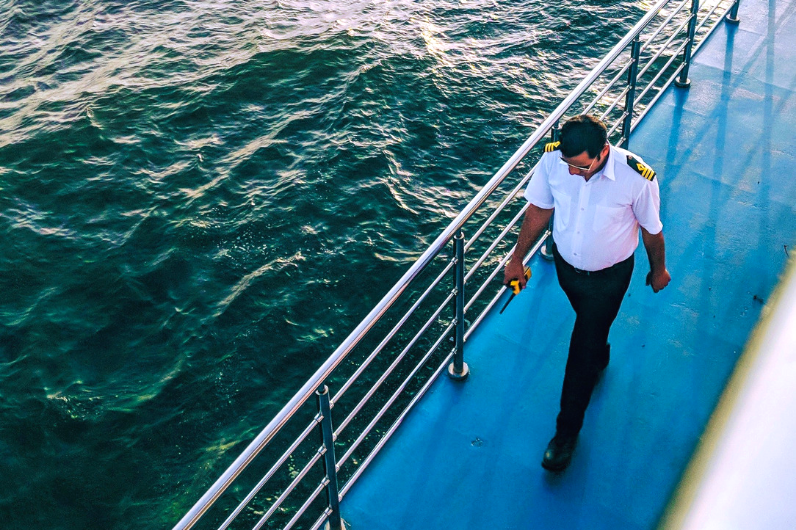
Job Role of a Superyacht Captain
As a rule, the smaller the yacht, the more hands-on the Captain must be. The larger the yacht, the more administrative duties the Captain will hold. A superyacht Captain specialises in commanding and managing luxury yachts over 24 metres in length.
Every crew member falls under the ultimate command of the Captain and will answer to him/her.
What does a Superyacht Captain do?
As a superyacht Captain, you’ll be at the top of your game, responsible not only for the yacht itself, but also for its crew, itinerary and navigating safe passages across the oceans. You’ll be in control of budgeting, administration, refit projects, yard visits, personnel, health and safety, to name but a few.
Personality traits
What personal traits are beneficial for this role.
You will need great communication skills to deal with owners, contractors, crew and guests alike. You will be dedicated to a career at sea and will already have established yourself in the industry having worked your way up the deck officer ladder building a reputation as a first-class professional along the way.
As a Captain, you must be highly skilled at dealing with people, both crew and the owner/guests. Personnel management skills are critical within this role.
Skills required to be a Superyacht Captain
What skills or experience are required.
Captains must have considerable maritime experience and training. A Captain of a superyacht has to have excellent seafaring knowledge, a good grasp of accounting, IT and administration and also deal with authorities on matters such as paperwork and health and safety.
Previous experience of yacht handling is essential and handling a yacht of the same or similar sizes a distinct advantage.
Benefits of being a Superyacht Captain
Your role really will be all-encompassing and you’ll answer to the yacht’s owner about all the decisions you make. A career as a superyacht Captain is demanding but rewarding. You’ll enjoy worldwide travel and earn a fantastic salary of anything from €4,000 per month with no cap on salary!
How to start your pathway to become captain?
More than just a love of the sea and a captain’s hat are needed to start a career as a superyacht captain. This is a career path that requires commitment, training, and practical experience. Enrolling in classes that offer the required maritime qualifications is the initial step. Take the Superyacht Cadetship Course as your first step into this fascinating industry. This extensive programme gets you ready for the rigours of the open sea by fusing classroom instruction with real-world sea experience. It is essential to network within the industry, and UKSA offers a helpful community that helps you take advantage of opportunities and pick the brains of industry experts. And never forget that your love of the sea serves as your compass; follow it to become a captain.
Career prospects
Be inspired graduates return to uksa to hire crew and further their training.
“We trust in UKSA because we did our training there and can vouch for its quality. Because the courses are all-inclusive they run back-to-back which really helps with fitting around our schedules. It is the best place from which to hire successful crew because the career courses are similar to a university degree. UKSA students devote time to their training and so are looking to stay with a boat for at least two seasons. This is valuable to us as we take time to invest in our crew and training – with UKSA we also know what to expect.” Officer Daniel Lambert
- MY Icon – 6 generations of UKSA trained crew now all working together
- Dan Snook – Planning to come back to UKSA for his Master 3000gt modules
Register your interest
- First name *
- Last name *
- How did you hear about UKSA? * –None– Campaign Dinghy Show Educational Visits UK Event GroupAccommodation.com Guardian Media IOW College IOW County Press London Boat Show Online PlanMySchoolTrip.co.uk Press Radio Referral School Travel Organiser Social Media Southampton Boat Show Top School Trips UKSchoolTrips.co.uk Visit IOW Yachts & Yachting
- General notes
- Opt-in to receive course information and relevant offers
- Accept Privacy Policy and Terms and Conditions .
- Email This field is for validation purposes and should be left unchanged.
If you have any questions or need to get in touch:
Speak to UKSA on +44 (0)1983 294941 or email us

- Charter & Brokerage
- Yacht Design & New Builds
- Tenders & Toys
- Superyacht Events Calendar
- Career & Training
- Departments
- Superyacht Crew Finances
- Sustainability
- Shipyards and Marinas
- Health & Wellbeing
- Polar Region
- Our Services
- Meet the Team
How To Become A Superyacht Captain With UKSA
.png)
Have you ever wondered what it takes to become a Superyacht Captain? To do so, it requires a combination of education, experience, and certifications across numerous years. In this article, we hear from Will Satterly, Head of Careers at UKSA , about how to become a Superyacht Captain.

Which Tasks Does A Superyacht Captain Carry Out?
As Captain, specialising in commanding and managing luxury yachts over 24 metres in length, you’ll be responsible for a crew and the safety of passengers. As well as this, you answer to the yacht’s owner about the decisions you make. Effective communication and leadership are crucial. Will elaborates:
“The Captain is responsible for the safety of the vessel and crew/passengers. Building an effective culture and maintaining the highest standards of professionalism and safety whist complying to all regulatory requirements. Managing expectations of owners and other stakeholders such as management companies, is another key part of being a successful captain.”
The smaller the yacht, the more hands-on the Captain must be. Yet they will have hold more administrative duties if the yacht is larger.
How Long Does It Take?
Naturally, depending on the candidate, this will vary. However, Will remarks that “6+ years is realistic to gain the necessary experience, sea time, and modules.”
The Qualifications & Traits You Need
As Captain, you will need:
- Great communication skills (to deal with owners, contractors, crew, and guests alike)
- Personnel management skills
- Excellent seafaring knowledge
- An understanding of accounting
- IT and administration skills
The UKSA pathway for MCA Deck Office certification outlines a series of steps you can take:
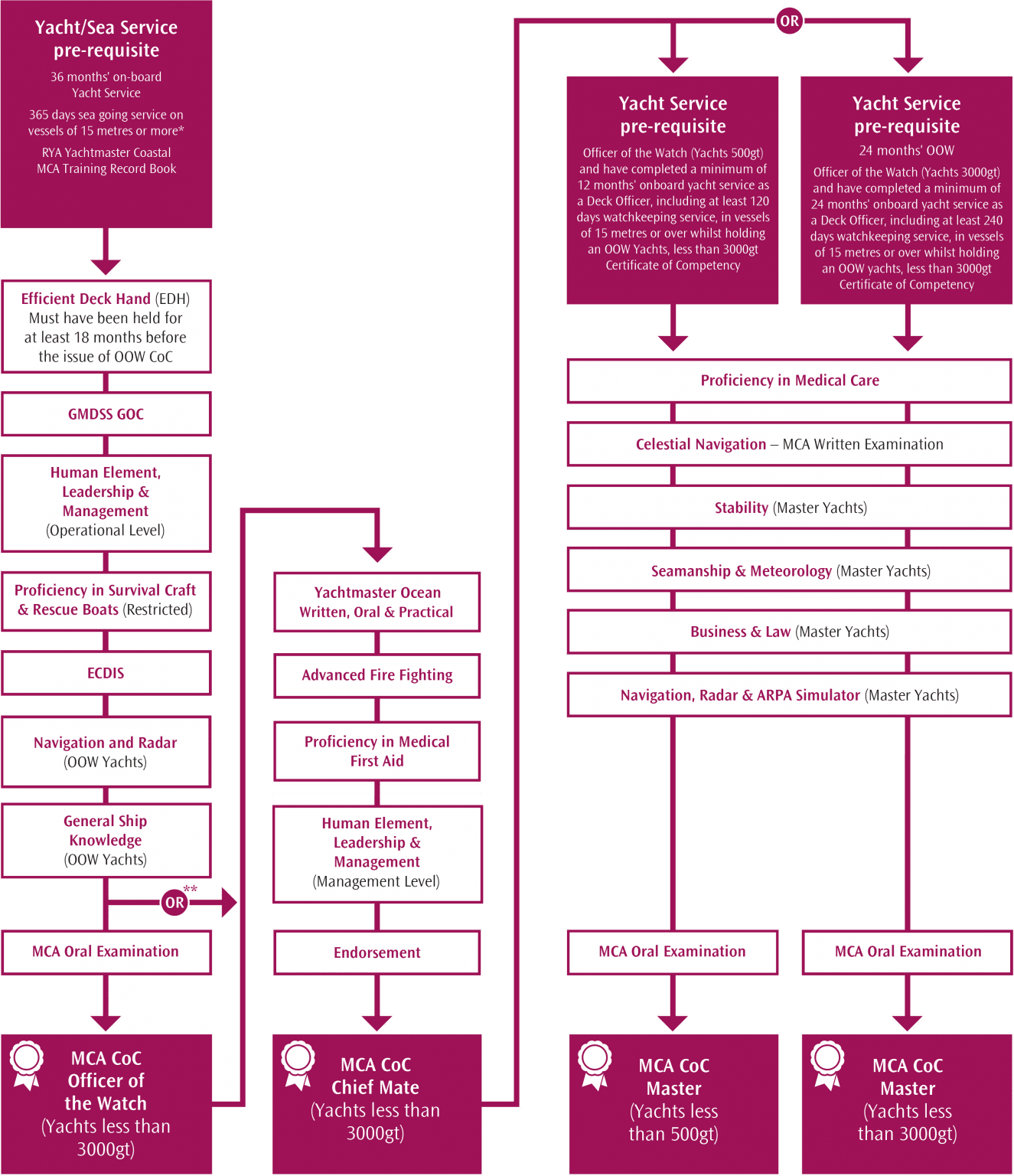
To keep up to date with the latest Superyacht Content News, click here .
Sign up to our Newsletter below:
Newsletter Signup
- Your Name First Last
- Your Email *

Maisie Granger
Related articles, the crew network – top jobs this week, big question for crew… so you want to be wealthy, galley crumbs: top 5 pre-retirement options for superyacht chefs, life after yachting: oceanform. from wearing uniform to designing them.

Popular Posts
- AYSS: The invention of Yacht Support
- Nobiskrug 124m Superyacht Refit Completed
- The two hot to trot beachwear trends for Summer 2017
- How to: upgrade your superyacht
- Croatian Island Hopping – Superyacht Style
Superyacht Content
Social media influencer and digital brand expert.
Superyacht Content brings you the latest in social news for the superyacht industry.
Keep up to date with us across our social channels, and don’t forget to hit that share button!
- Superyacht News
- Superyacht Jobs
- Superyacht Marketing
Join our Newsletter
Copyright © 2023 Superyacht Content | Website Design by Zonkey
Privacy | Credits | Get in Touch

Do you operate a yacht? Our app is perfect for you
How to become a yacht captain - certifications & experience.
Just like any other highly paid and highly specialized position, becoming a yacht captain is a long grind. Nothing is given to you. You have to start from the bottom and work your way up. It is a process that takes many years of sea time, education, and experience.
Assuming that you are relatively new to the industry, it’s best to start from the very beginning. In the following chapters we will go through a detailed breakdown of the certifications and qualifications you need, and show you how to become a yacht captain.
Table of contents
How to become a yacht captain - Basic education
Rya certification, creating your resume, get to a yachting capital.
- "Earning" your first job
- Get experience & continue your education
Climbing the ranks
Becoming a yacht captain, responsibilities of a yacht captain, yacht captain salary, final notes on how to become a yacht captain.
.jpeg)
Before you get your first job onboard of any yacht, there are a few courses you need to take. These are mandatory for everyone who wishes to work onboard, and are commonly known as basic training for seaman:
- STCW 2010 Basic Safety Training (BST) - This training consists of first-aid practices, response to emergencies, personal safety, social responsibility, and best practices for sea survival. The duration of this course is 5 days and pricing starts at $1012.
- Efficient Deck Hand (EDH) course) - This course teaches basic seamanship, rope and wirework, painting and maintenance routines, as well as other safe working practices aboard. Much like the BST, this course is 5 days long and pricing starts at $964).
At this point, what you want to do is get your Royal Yachting Association (RYA) certificate. The Royal Yachting Association (RYA) is a recognized organization that issues your Powerboat Handling Level 2 (basic course), Yachtmaster™ Offshore , and Yachtmaster™ Ocean .
Note that the costs associated with the RYA certificate can vary, as you need to find an associated training center, purchase all the necessary materials, and abide by all the entry requirements. So you might need to do some research at this point.
Once you successfully complete the courses mentioned above, you will need to put your CV together. There are many templates you can use for this purpose. You can start by using this one .
Once your CV is created, you will need to seek out the best yacht crew agencies and start applying to all of them. This page gives a good overview of the most popular options.
Keep in mind that there are many options when it comes to resume templates and yacht crew agencies. It might be a good idea to use Google to find more options.
.jpeg)
To increase your odds of getting a job onboard, you will now need to get to one of the yachting capitals. This is, by far, one of the best tips for ambitious young sailors that want to know how to become a yacht captain.
Don’t get fooled by those who tell you of their single best yachting capital of the world. Depending on your current location and budget, you will have several options. Check this article to start your research.
“Earning” your first job
As soon as you arrive at your yachting capital of preference, you will need to get a job. Similar to any other industry, this usually happens by actively seeking out open positions. For yachting work, this is done through “dock walking”, a term that refers to the process of going from boat to boat, searching for opportunities.
What you want to do here is be pleasant, hand out your CV, grow your network, and offering any kind of service. There might be owners that need help with buffing, sanding, polishing, scrubbing decks… you name it! Take any job that you can because each hour you spend onboard improves your resume.
After a while, you will hopefully manage to get a job aboard a (super)yacht. This is where you want to be. It is important to manage your expectations and prepare to work very hard. Your first job will not be glamorous and it will certainly not be a “working holiday”. You will be living in a cramped scape, away from home, doing chores most hours of the day.
Don’t let the day-to-day tasks discourage you. Everything you do at this point helps you build character and shows that your position is “earned”. You will have many opportunities to gain experience, overdeliver, and start climbing the ladder.
Gain experience & continue your education
As you become more experienced and collect enough hours onboard, you will qualify for a few more courses, which are issued by the Maritime and Coastguard Agency (MCA).
- Officer Of the Watch (OOW) - This course allows you to become an officer on board a vessel up to 3000gt. In order to apply for this course, you will need to meet several requirements, including >250 days onboard, holding an RYA certificate for at least 36 months, and having completed an MCA training record book . The latest is a list of tasks that you need to complete while serving onboard a vessel that exceeds 15 meters in length. Anything smaller is not qualified as valid experience according to the MCA. The modules of OOW include:
- General Ship Knowledge (GSK) - Price between $1000 - $1100
- Navigation & Radar (ARPA operation) - Price upon request
- Global communications training (GMDSS GOC) - Price starting at $1625
- HELM Training Operational Level - Price upon request
- Proficiency in survival cross & rescue boats - Price between $860 - $900
- Electronic Chart Display Information System (ECDIS) Training - Price between $1300 - $1800
Each of the modules, once completed, requires a written exam. This means that you need to find a partner organization where you can go and write the exam. If you pass, the certificate will be sent to your location (including a digital copy that you can add to your resume).
You need to pass all of the modules in order for the MCA to issue your certificate of competence (COC). And as soon as all that is done, you are officially qualified to perform your oral exam for the OOW. Here is a video that shows you the steps you need to follow:
The exam itself consists of a discussion with a qualified instructor, where you go through all the modules through a series of questions. Upon passing the exam, and given that you hold all the aforementioned certificates, you will receive the MCA Yachts OOW certificate and are officially qualified to be a deck officer.
Keep in mind that the certificate itself doesn’t automatically guarantee you a promotion. You might move slightly up the ranks (lead deckhand) but you will still need to gain more experience in the form of additional sea time.
More specifically, you can continue with higher-level education once you gain even more experience on board.
The course you want to do is known as MCA Master 500 yachts . You can do this once your certificate of competence has been issued for OOW and 12 months have passed. You will also need to have an additional 120 days of verified sea service.
The course consists of several master modules, which include:
- Ship Stability - Price: $1500
- Business and Law - Price: $1500
- Navigation, ARPA, and radar simulator - Price: $3350
- Seamanship & Meteorology - Price: $1500
The course also includes some ancillary course modules, as well as the requirements you need to abide by in further detail. Similar to the OOW, you will need to pass a written certificate for each of the modules, in order to proceed to an oral exam to receive your Master 500 certificate of competence (COC).
You now have all the necessary qualifications - there are no more modules. However, you still need to perform an additional 12 months of sea time, and 120 days of sea service.
The final step is getting your MCA Master 3000 certification, a process that consists of an oral exam only. You can find more information about the requirements and components here . The oral prep course for this exam is highly recommended, takes 5 days, and costs between $890 and $1160, depending on the number of students that choose to participate.
Those who have little to no experience tend to think that a captain’s only responsibility is to command the ship. The truth is much “broader”. A yacht captain’s responsibilities are divided into three areas:
- To ensure the safety of life of everyone onboard
- To ensure the safety of the vessel (paperwork, unforeseen circumstances, etc.)
- To ensure the safety of the marine environment
This may sound rather simple, but remember that there are many subcategories that fall under these responsibilities:
- Ensuring the crew is well-trained, rested, and qualified to do their job, all while remaining safe. This requires strong (cross-cultural) people skills and is probably the hardest part of the job.
- Make sure that all your personal certificates, as well as the vessel documentation, is in order.
- Staying up to date with yacht inspection, maintenance, and logging all the necessary information. You can completely automate this responsibility by using our software, PlanM8 .
- Make sure that the vessel is compliant with the International Safety Management code
- Navigation of the vessel
- Make sure the yacht owner (or guests) are satisfied.
The salary of a yacht captain depends on several factors, including the years of experience, the size of the vessel, and the duration of the contract. Generally speaking, the low end of the salary is approximately $5000 per month and the high end exceeds $18.000 per month. For more information, check this resource .
After reading all of the above you should have a better idea of how to become a yacht captain. There are many courses you need to complete and lots of personal sacrifice in the form of sea time. This is why only the most passionate ones - those willing to go the extra mile - will manage to get a hold of the helm.
Remember that in between each of your certifications it is important to get as much sea time as possible, doing everything in your power to learn from the master on board. Much like any traineeship, your primary concern should involve gaining lots of experience.
The discipline and character you build along your former years will help you understand the importance of continuous education. You will naturally want to familiarize yourself with the latest industry practices and improving your abilities.


How to Become a Yacht Captain- An Expert’s Handbook
Do you want to become a yacht captain? Having watched my husband climb the ranks over the past 12 years, I have first-hand experience of seeing what it takes to become a yacht captain.
We started working on a small catamaran in the Seychelles, and today, he is the successful Captain of a world-traveling 50m super yacht.
Becoming a yacht Captain requires a significant investment of time and money, but the reward of commanding your own vessel and crew is immeasurable.
Let’s explore what it takes, including the salaries, necessary skills, and certifications.
Table of Contents
Job Description of a Yacht Captain
The Captain of a superyacht is responsible for the safe navigation of the vessel, the safety of the crew onboard, as well as protecting the environment.
They are the primary source of communication with the yacht owner, guests, and management company.
They also handle all the daily operations of the yacht, including crew management and safety training. The Captain deals directly with management companies, port control, maritime legislation, budgets, accounting, and human resources.

Yacht Captain Salary
The below super yacht Captain salary guideline is based on my personal research using an average of over 10 major yachting platforms:
- 20m-30m: $4000-$7500 p/m
- 30m-40m: $5500-$9500 p/m
- 40m-50m: $8000-$15000 p/m
- 50m-70m: $13000-$19000 p/m
- 70m+: $16500+ p/m
Additionally, with longevity a yacht Captain can also expect to see discretionary annual raises and bonuses.
If they work on a Charter Yacht there will also be charter tips received averaging $2500-$5000 per week of chartering.

Roles and Responsibilities of a Yacht Captain
The job of a Yacht Captain can be compared to that of a CEO, CFO, and COO of a large corporation. The responsibilities are huge.
On a smaller vessel of 35m or less, the captain will need to be more hands-on, and they will likely also be the engineer of the vessel.
However, as the vessel size increases, you will have larger teams and heads of departments to assist in delegating tasks.
Roles and Responsibilities
- Crew Management and training
- Hiring and dismissals of crew
- Human resources
- Accounting and budgeting
- Safe navigation of the vessel
- Safe navigational planning
- Marine and environmental protection
- Vessel maintenance – planning yard work and refits
- Owner and guest liaison
- Planning of guest trips and itineraries
- Ensuring the yacht is compliant with maritime law
- Ensuring the yacht is compliant with all flag state safety regulations
Soft and Hard Skills
When it comes to the question of how to become a yacht captain, besides the required licenses, it is essential to hold certain soft and hard skills:
- Strong leadership skills
- Team management
- A quick thinker and problem solver
- Calm under pressure
- Exceptional communication skills
- Diplomatic in decision-making
- Excellent boat handling skills
- Navigational skills
- Administrative skills
- Organizational skills
- Computer literate
- Strong understanding of maritime legislation

Mandatory Certifications for How to Become Yacht Captain
The license required when identifying how to become a Yacht Captain is dependent on the size/tonnage of the vessel they wish to drive.
Your entry-level Captain license is the Yacht-Master 200 ton. This allows you to drive a vessel of under 200 tons, which is approximately 35m/100ft.
From there, with enough sea time and experience, you can move up towards the Master 500 and then Master 3000 tickets.
If you were to start from scratch, you would first want to look at how to become a deckhand . This will give you all the information and guidance you require before you get to the point when you are ready to start your master’s licenses.
Here is the order in which you would complete your courses:
- ENG1 Medical
- Efficient Deckhand (EDH)
- Yacht-Master Offshore (200ton)
- Yacht-Master Ocean (200 ton)
- OOW (Officer of the Watch)
- Chief Mate 3000
- Master 500 ton
- Master 3000 ton
Yacht Master Offshore 200 ton Limited
Holders of this certificate can Captain a yacht up to 200 gross tons and must be within 150 nm from a safe haven whilst doing so. This course is also required to legally stand watch on a vessel of up to 500gt.
The course consists of theory and practical work and takes 13 days to complete.
Pre-requisites for Yacht Master 200t Limited:
- 3,000 nautical miles while cruising at sea
- 50 days at sea as an active crew member
- 5 days as skipper on vessels less than 24m LOA
- 48 hours on watch at night underway as an active member of a yacht’s crew. During at least six hours of this nighttime experience, the candidate must have acted as the vessel’s captain or watch leader.
- A GMDSS-compliant Marine Radio Operator’s Certificate such as the RYA Short Range Certificate or higher
- All qualifying sea time must be within 10 years prior to the exam

Master of Yachts 200 ton Ocean Unlimited
This certificate allows the holder to be in charge of a commercial yacht of up to 200 gross tons on unlimited voyages.
This comprehensive six-day course on celestial navigation is designed to equip future yacht Captains with the knowledge necessary to navigate the globe using a sextant and air navigation tables.
Additionally, it will enable them to plan, undertake, and manage an ocean passage with confidence.
Pre-requisites for the Master 200 ton Unlimited:
- Before enrolling in the course, candidates must have completed two voyages of 250 miles each or one voyage of 500 miles. The majority of the journey must take place out of sight of land, which means being at least 20 miles away from the shoreline.
- For the qualifying voyage, it is expected to create a passage plan that can be reviewed during the course.
Officer of the Watch (OOW)
In order to obtain the MCA Officer of the Watch (Yachts Less Than 3000 GT) Certificate of Competency, candidates must complete seven distinct modules. These modules are designed to prepare candidates for the MCA oral exam.
Pre-requisites for the OOW:
- IYT Master of Yachts Limited certificate
- A minimum of 250 days of actual sea service
- 115 days can be either sea service, stand-by-service or yard service
- A Completed MCA approved training record book
The 7 modules include:
- Navigation and Radar (15 days)
- General Ships Knowledge GSK (5 days)
- Proficiency in Survival Crafts and Rescue Boats/Advanced Sea Survival (3 days)
- Human Elements and Leadership Management HELM (3 days)
- Global Maritime Distress and Safety Systems (GMDSS)
- Efficient Deckhand EDH (5 days)
- Electronic Chart Display and Information ECDIS (5 days)
- MCA OOW Deck Oral Prep Work (12 days)

Chief Mate 3000GT
After obtaining the Officer of the Watch certification for yachts less than 3000gt, you can apply to the MCA for the endorsement of the Chief Mate (Yachts less than 3000gt) Certificate of Competency. It is possible to apply for both certifications at the same time.
Course Modules include:
- STCW Advanced Fire Fighting (4 days)
- Proficiency in Medical First Aid (4 days)
- Human Elements of Leadership Management – Management level (4 days)
Master of Yachts (500GT)
This certificate is required in order to Captain a yacht of up to 500 gross tons.
Requirements for the course:
- 12 months as a watch-keeping officer with an OOW Certificate
- A valid ENG1
Modules include:
- Stability (5 days)
- Business and Law (5 days)
- Navigation and Radar with ARPA Simulator (10 days)
- Seamanship and Meteorology (5 days)
- Celestial Navigation Refresher and Exam (5 days)
- Proficiency for persons in charge of medical care onboard a ship (4 days)
Master of Yachts (3000GT)
This certificate is required in order to Captain a yacht of up to 3000 gross tons.
The modules for the Master 3000GT are the same as that of the Master 500. If you pass all the modules and have met the requirements for the Master 3000GT, you can skip the Master 500gt Course and do the exam and oral for the Master 3000GT.
Requirements include:
- including not less than 240 days watch-keeping service whilst holding an accepted OOW Certificate of Competency (CoC).
- All of this service must be completed in vessels of 15m or over in load line length and include 12 months in vessels of 24 m or over in load line length, or 6 months in vessels of 500gt or more.
- A valid ENG1 Certificate
Final thoughts
Most crew don’t anticipate the significant amount of time and money it takes when wondering how to become a yacht Captain.
My advice to you is to start logging your sea time from the very beginning and plan ahead. You don’t want to miss out on opportunities due to not having the required license.
If you are still looking for more detailed information or if you are looking to book a course, head over to the PYT website. They are an MCA compliant training facility with schools in Fort Lauderdale and South Africa.
Good luck on your journey. I hope to see you out in the big blue ocean commanding your own vessel one day.

Hi, my name is Lisa, a Chief Stewardess in the yachting industry with 10 years of experience, as well as 8 years of hospitality experience prior to that. Being in the yachting industry has been a whirlwind of adventure, growth, challenges and some of the best experiences of my life, and I am excited to share my knowledge and experiences with all of you.

A day in the life of a superyacht captain
It’s easy to think that a captain’s job is to drive a superyacht to glamorous locations and drop the anchor in idyllic anchorages, but as Kelly Gordon and other captains will tell you, that’s only a tiny part of the role.
For Kelly Gordon, captaining a superyacht was something she never imagined until she had already started a career as a chemistry professor when a chance encounter at a party on a large motor yacht changed everything. Now, having uncovered her passion for the sea and having achieved the ultimate position as a superyacht captain, Gordon is not only a role model for female crew who want to pursue a career on the deck and engineering side of superyachts, but is also an active advocate of crew mental health. But what exactly does a superyacht captain do, and is it just about driving the yacht from A to B and making sure the crew keep it in top condition?
The simple answer, says Gordon, is no – and in fact the role of a modern yacht captain is highly complex and multifaceted. Take Gordon’s current command, for example – a 33-metre private yacht that cruises extensively with the owning family on board. “My responsibilities of course encompass safely operating and navigating the boat – that’s the technical side of it,” Gordon begins. “But actually the smallest element is navigation and operation, and the far bigger side is crew management. I spend a tremendous amount of time with the crew, making sure everyone’s got what they need.
“Along with that too,” she continues, “is making sure that the owners and their family have what they need, and understanding what their plans are. Where do they want to go? What are they wanting to do? It’s about making sure they are always well cared for.”
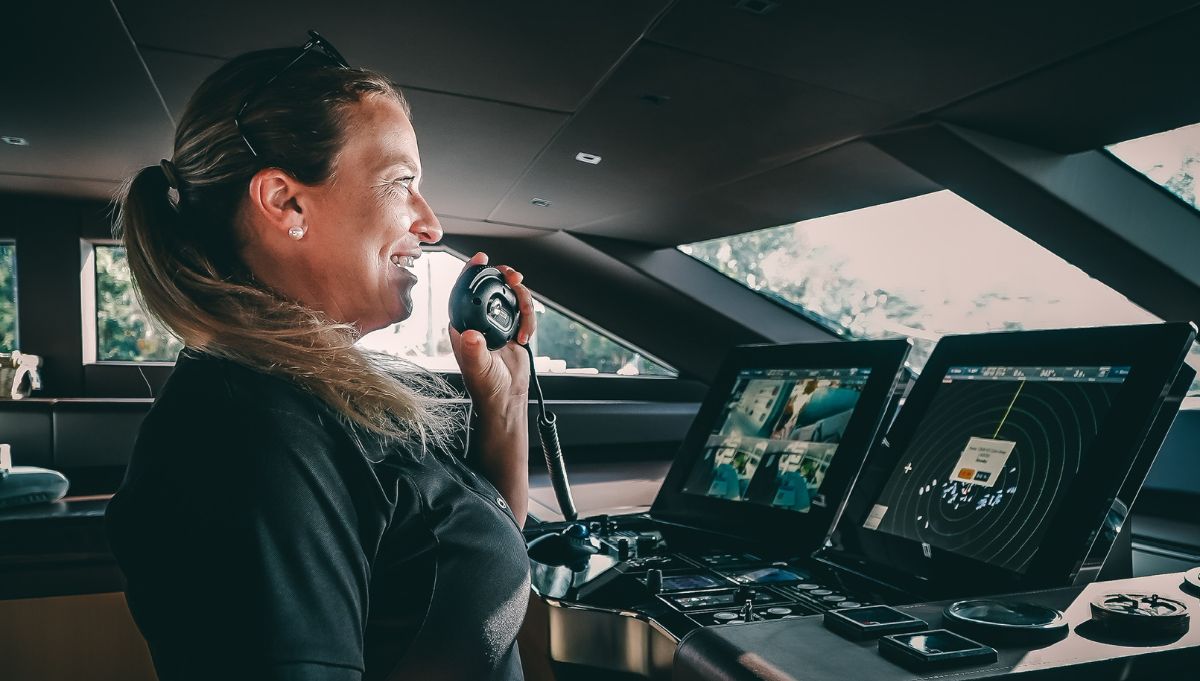
Changing landscapes
The early days of yachting were, in some ways, a much simpler time. Yachts on average were smaller, and captains and crews often came from a sailing or boating background. There were elements that a captain had to understand and undertake, such as holding a recognised commercial skipper’s ticket, keeping logs, managing the yacht’s accounts and so on. But as the fleet has grown and as yachts have grown, so too have the duties expected of captains.
“As a captain, especially the larger and larger you go in terms of yacht, you become the CEO of a company in a way,” Gordon offers. “But you’re doing what you’re trained to do. To operate and navigate the yacht actually ends up being the smaller percentage of what you do, and the day-to-day is emails, paperwork, schedules, plans, maintenance if you’re in the shipyard, and whether you charter or are private you still need to know where the boss or potential guest wants to go, and show them a good time.”
Paper tigers
One thing that has definitely changed over time is the increasing burden of paperwork related to regulatory elements such as the International Safety Management code (ISM) and in some cases the International Ship and Port Facility Security Code (ISPS). “The biggest change I’ve seen since I started is a regulatory change,” offers Captain Steve Osborne . “I find myself spending more and more time on more and more paperwork. There’s a lot of delegation you can do, but you have to really start to understand a lot of the legal frameworks of where you’re going [with the yacht] and be a bit more cautious and pay a bit more attention, because rules have changed over time and are a bit more stringent now.”
Gordon agrees that the burdens have increased, but also argues that there are benefits. “The paperwork has grown, but I think it’s a good thing,” she asserts. “I actually think there probably can stand to be a little more regulation in the industry. When I talk to my buddies who are working on commercial vessels and I see how things are done – granted, they have their own sets of issues as well – I think it’s good that we take a page or two out of their book.”
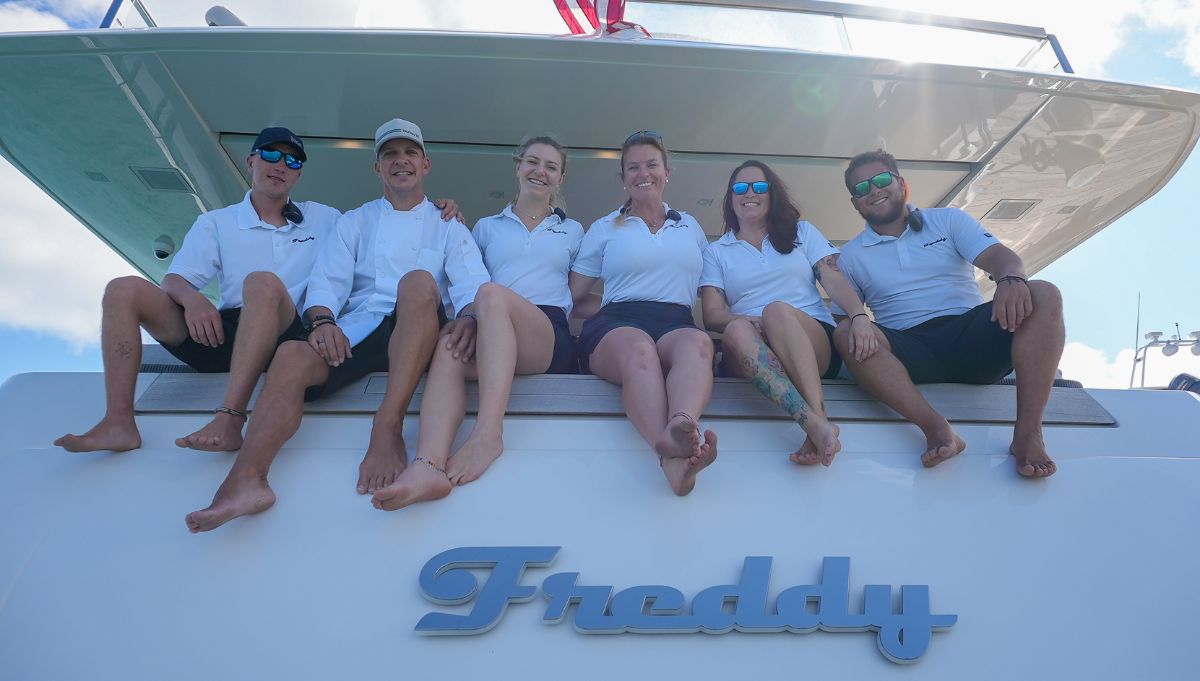
Mind over matter
One of the biggest elements of being a superyacht captain is being able to look after a superyacht crew, and that means not only nurturing and mentoring crew members but also, increasingly, being aware of other issues that can arise – particularly when crews are living in close quarters and working long hours.
“The driving-the-boat bit is easy, that’s our bread and butter,” says Captain Matthew Pownell-Jones. “It’s the other stuff that no one actually teaches you – how to care about the crew, how to listen to someone who has maybe just joined the crew and has a problem that no one knows about. The crew is a floating family, and if that’s the way you think of it then that’s how I feel a team works well.”
It’s something that Gordon has put front and centre not only of how she runs her own yacht and crew, but also of raising awareness in the industry of the importance of mental health considerations. “I’m pretty hard-charging in the mental health space for crew and the yachting industry,” she says. “I’m determined that we will see change, and will see a better and safer workplace for crew, both in terms of general safety on board and also in terms of mental safety.
“I’m not that old – I am only 42 – and just over the course of my life and in my 15 years in this industry I’ve seen it change in terms of being able to talk about it, and it being accepted as a conversation and as part of our overall health. It’s so important because on board we don’t work a nine-to-five then clock out and get to go home to our safe space.”
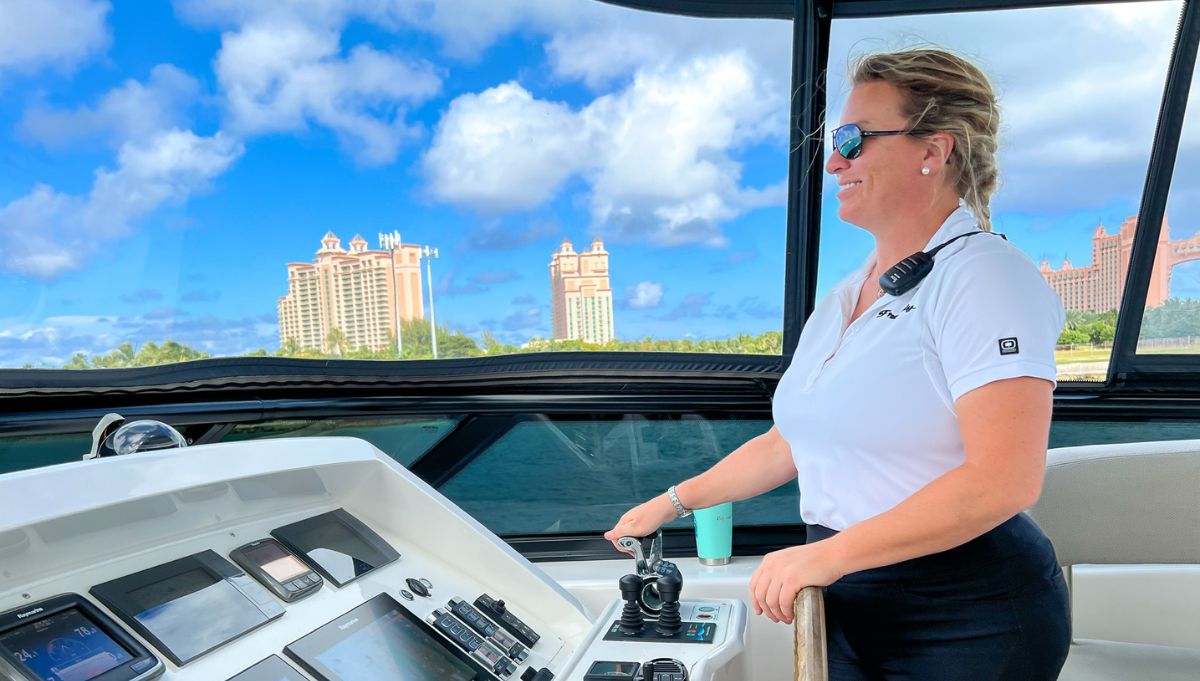
Guest appearance
For all the paperwork, planning and crew management, there is of course the part that makes superyachting what it is – yacht owners and yacht charterers enjoying what a superyacht offers and the places it can take them. It’s perhaps the final piece of the puzzle for an experienced superyacht captain.
“For private cruising or for yacht charter alike, first of all, you want to make sure the yacht is clean and ready to present to the boss or the guests and that each crew member knows who’s doing what,” Gordon enthuses. “If it’s a little booze cruise, the stews need make sure all the drinks are on board and that the yacht interior looks pretty nice and warm and fuzzy. My engineer has to make sure everything’s operating and working, and then the guys on deck make sure that everything’s taken care of on the exterior.
“Then with me, it’s communicating back and forth with the family or the charter guests as to where they want to go or what they want to do, and then communicating that to my crew. And when it gets busy and the days get long, with the crew potentially on call, I try to balance everything by making sure everyone is getting breaks, and offsetting the crews’ functions so that there’s always someone up with the guests and always someone getting some rest to be able to relieve whoever’s on duty.
“People ask me that the best part of my job as captain is outside being able to utilise my skill of navigation and operation of the yacht,” she concludes, “and my favourite part of the job is also the most difficult part – and that’s the crew. I love them to death. My current boat is a happy, fun, loving, playful, hard-working professional boat, but it’s taken a long time to put that together. If you work at it as a captain and you put the time in and invest in finding and mentoring, you can create that.”
Do you work in the superyacht industry? Yes No I would like to receive updates from Superyacht Life
Don’t miss out
Sign up to our newsletter and get our latest stories delivered monthly to your inbox.
How to Become a Yacht Captain? Step-By-Step Guide
Setting sail on the high seas as a yacht captain is a dream that captivates the hearts of many. The allure of commanding a vessel, exploring breathtaking destinations, and living a life intertwined with the ocean’s vastness is undeniably enticing. However, this coveted role comes with great responsibility and requires a unique set of skills and qualifications.
In this article, we embark on a journey to unravel the path of becoming a yacht captain. We will delve into the responsibilities that come with this esteemed position and the skills needed to excel in the role. From mastering navigation and seamanship to leading a crew and ensuring the safety of all on board, the role of a yacht captain demands a comprehensive understanding of both the art and science of sailing.
While the journey to becoming a yacht captain may be challenging, it is a rewarding pursuit for those who possess a deep love for the sea and a desire for adventure. Whether you aspire to captain luxury superyachts or explore remote corners of the world on expedition vessels, this article will serve as a compass, guiding you through the necessary steps and providing insights into the world of yacht captains.
So, hoist the sails, secure the lines, and join us on this voyage as we explore the path to becoming a yacht captain and the exciting possibilities that await those who choose to navigate the oceans as masters of their own destiny.
Understand the Role of a Yacht Captain:
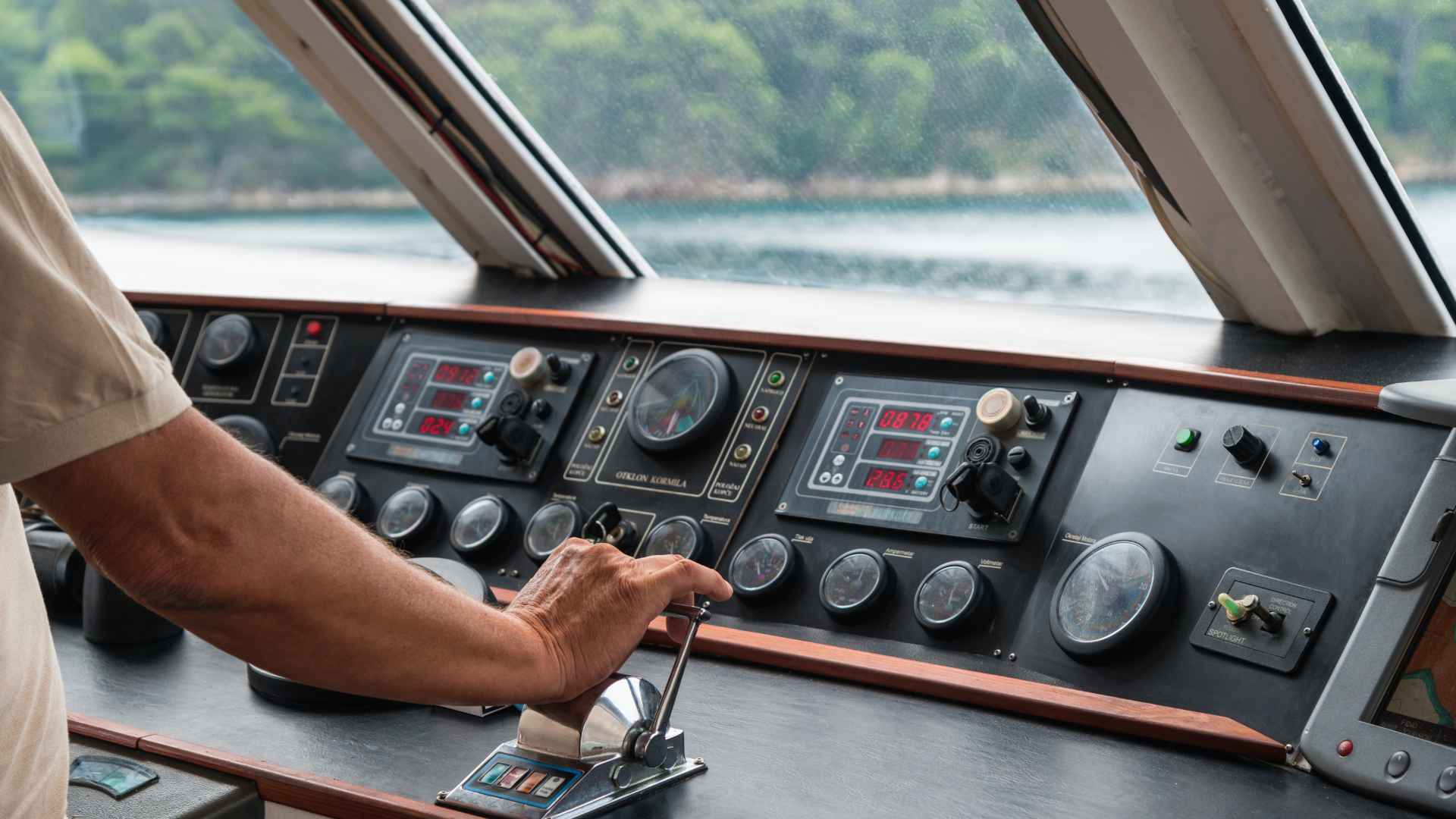
What are the primary responsibilities of a yacht captain?
The primary responsibilities of a yacht captain involve the overall operation and management of a yacht. Here are some key areas of responsibility:
- Vessel Navigation: The captain is responsible for safely navigating the yacht, ensuring it follows maritime regulations and adheres to navigation rules. This includes charting courses, monitoring weather conditions, and operating navigation equipment.
- Crew Management: The captain oversees the crew and is responsible for their training, supervision, and performance. They assign duties and delegate responsibilities to ensure smooth operations on board. Effective crew management involves fostering teamwork, promoting a positive work environment, and addressing any issues that may arise.
- Guest Safety: The safety of passengers and guests is a top priority for a yacht captain. They ensure that all safety protocols and procedures are in place and followed diligently. This includes conducting safety briefings, maintaining emergency equipment, and implementing appropriate security measures.
- Maintenance Oversight: The captain is responsible for the overall maintenance and upkeep of the yacht. They oversee routine maintenance tasks, coordinate repairs and inspections, and ensure that the vessel meets all safety and regulatory requirements. This includes managing budgets, inventory, and working closely with engineers and technical staff.
Effective Communication, Leadership, and Problem-Solving Skills:
Being a yacht captain requires strong communication, leadership, and problem-solving skills due to the nature of the role:
- Communication: The captain must effectively communicate with the crew, guests, and other stakeholders. Clear communication ensures smooth operations, fosters teamwork, and promotes safety on board.
- Leadership: A captain is expected to lead by example, inspire the crew, and make informed decisions in high-pressure situations. They must possess strong leadership skills to guide the team and manage various challenges that may arise.
- Problem-Solving: Yacht captains often face unexpected situations or emergencies. They need to think critically, make quick decisions, and find solutions to ensure the safety of everyone on board. Problem-solving skills are crucial for handling unforeseen circumstances effectively.
Necessary licenses and certifications required to become a yacht captain
To become a yacht captain, individuals must acquire the necessary licenses and certifications. The specific requirements may vary depending on the country and the type of vessel. Here is a general overview:
- OUPV (Operator of Uninspected Passenger Vessels) License: This license, also known as a six-pack license, is required for operating uninspected vessels carrying up to six paying passengers. It allows captains to operate charter boats, fishing boats, and small passenger vessels.
- Master License: The Master License allows captains to operate larger vessels that carry more passengers. There are different levels of Master licenses, such as Master 25, 50, 100, 200, and 500. The number denotes the maximum gross tonnage of the vessel.
Eligibility criteria for these licenses typically include:
Meeting the minimum age requirement (usually 18 years or older).
- Accumulating a specific number of sea service days, which may vary based on the license level.
- Passing a written examination that tests knowledge of navigation, safety, and other relevant topics.
- Meeting medical fitness requirements.
- Providing character references and completing an application process.
It’s important to note that these requirements can vary between countries and regions. It’s recommended to consult the maritime authority or governing body in the relevant jurisdiction to get accurate and up-to-date information on licensing and certification requirements for yacht captains.
Gain Experience and Build a Skill Set:
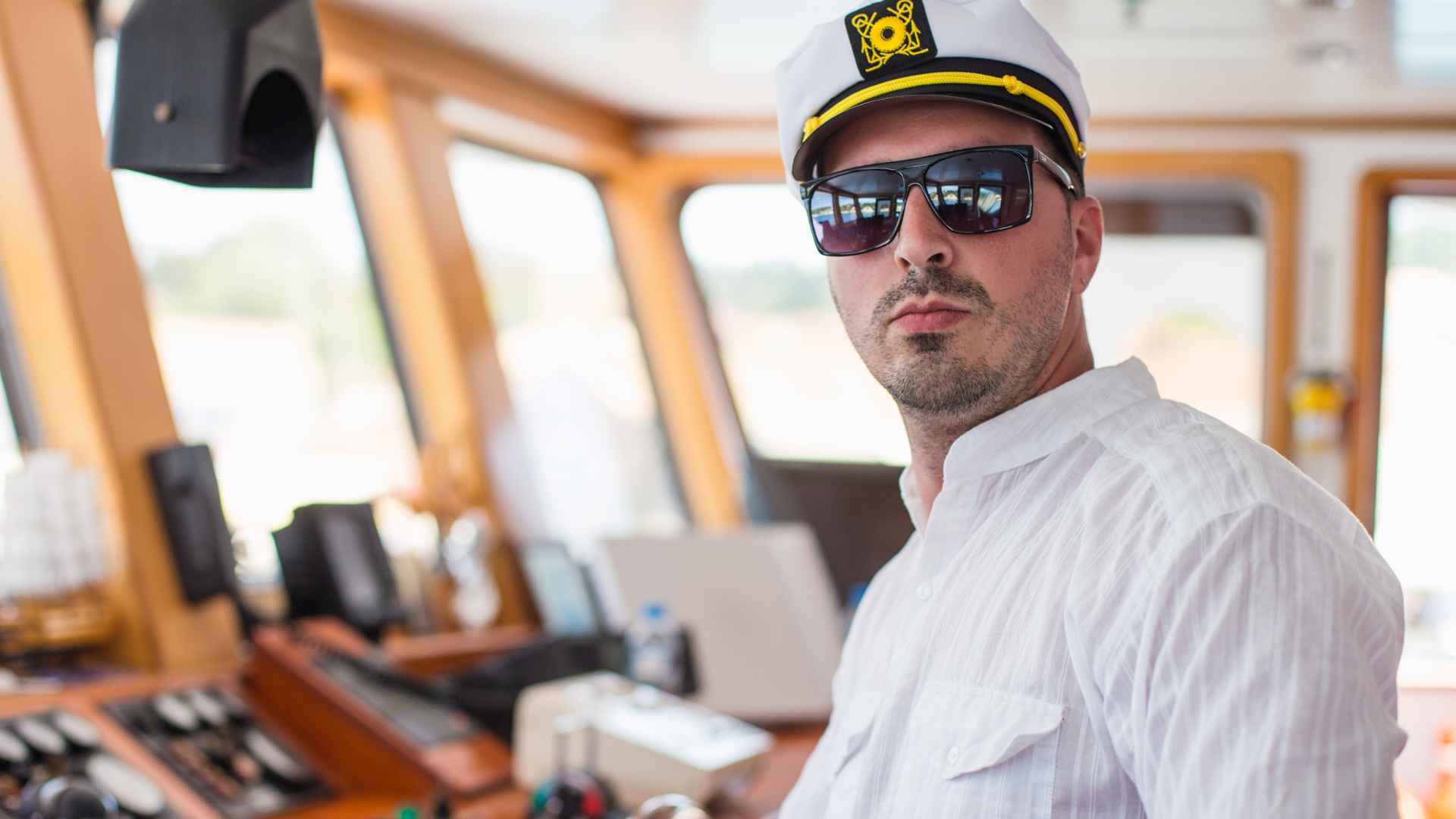
Importance of gaining foundational boating knowledge
Gaining foundational boating knowledge is essential for aspiring yacht captains. It provides a solid understanding of boating principles and sets the groundwork for further development. Here are some key points to consider:
- Understanding Navigation Rules: Familiarize yourself with the rules of navigation, including buoyage systems, right of way, and international maritime regulations. This knowledge ensures safe navigation and promotes responsible boating practices.
- Weather Patterns and Conditions: Learn about weather patterns, tides, and their impact on boating. Understanding weather forecasts and how to interpret them is crucial for planning safe voyages and avoiding hazardous conditions.
- Basic Boat Handling: Acquire basic boat handling skills, including steering, docking, and maneuvering in different environments. This knowledge forms the foundation for operating and controlling a vessel effectively.
There are various resources and courses available to help gain this knowledge. Consider taking boating safety courses offered by organizations such as the United States Power Squadrons (USPS), the U.S. Coast Guard Auxiliary, or local boating associations. Additionally, introductory sailing lessons or basic boating courses can provide valuable insights into navigation and boat handling.
Value of gaining hands-on experience by working as a deckhand or crew member on a yacht
Gaining hands-on experience by working as a deckhand or crew member on a yacht is invaluable for aspiring yacht captains. This experience provides insights into yacht operations, teamwork, and the daily responsibilities involved. Here are a few benefits:
- Exposure to Yacht Operations: Working on a yacht allows you to observe and participate in various tasks related to vessel maintenance, navigation, safety protocols, and guest services. You’ll gain practical knowledge and understand the dynamics of running a yacht.
- Teamwork and Communication Skills: Collaborating with other crew members fosters teamwork and effective communication. Learning to work efficiently as part of a team is crucial for a yacht captain, as they need to lead and coordinate the crew effectively.
- Networking Opportunities: Building connections within the yachting industry can lead to future job opportunities and career advancement. Engage with experienced professionals and seek mentorship to enhance your learning and growth.

Benefits of enrolling in professional training programs and maritime academies
Enrolling in professional training programs and maritime academies can significantly enhance your knowledge and credibility as a yacht captain. Here are a few options to consider:
- STCW (Standards of Training, Certification, and Watchkeeping) : The STCW training is an internationally recognized set of standards that provide essential safety and operational training for seafarers. This certification covers areas such as firefighting, personal survival techniques, first aid, and maritime security.
- RYA (Royal Yachting Association) Qualifications: The RYA offers a range of qualifications that are widely recognized in the yachting industry. These certifications cover areas such as navigation, radar operation, diesel engine maintenance, and yachtmaster training.
- Maritime Academies: Consider attending a maritime academy that offers specialized training for yacht captains. These institutions provide comprehensive education and practical experience, preparing you for various challenges of the role.
Investing in professional training demonstrates your commitment to the industry and enhances your skill set, making you a more competitive candidate for yacht captain positions.
Remember, gaining experience and building a skill set takes time and dedication. Embrace opportunities to learn, be proactive in seeking hands-on experience, and continually update your knowledge through courses and certifications.
Obtain the Required Licenses and Certifications:
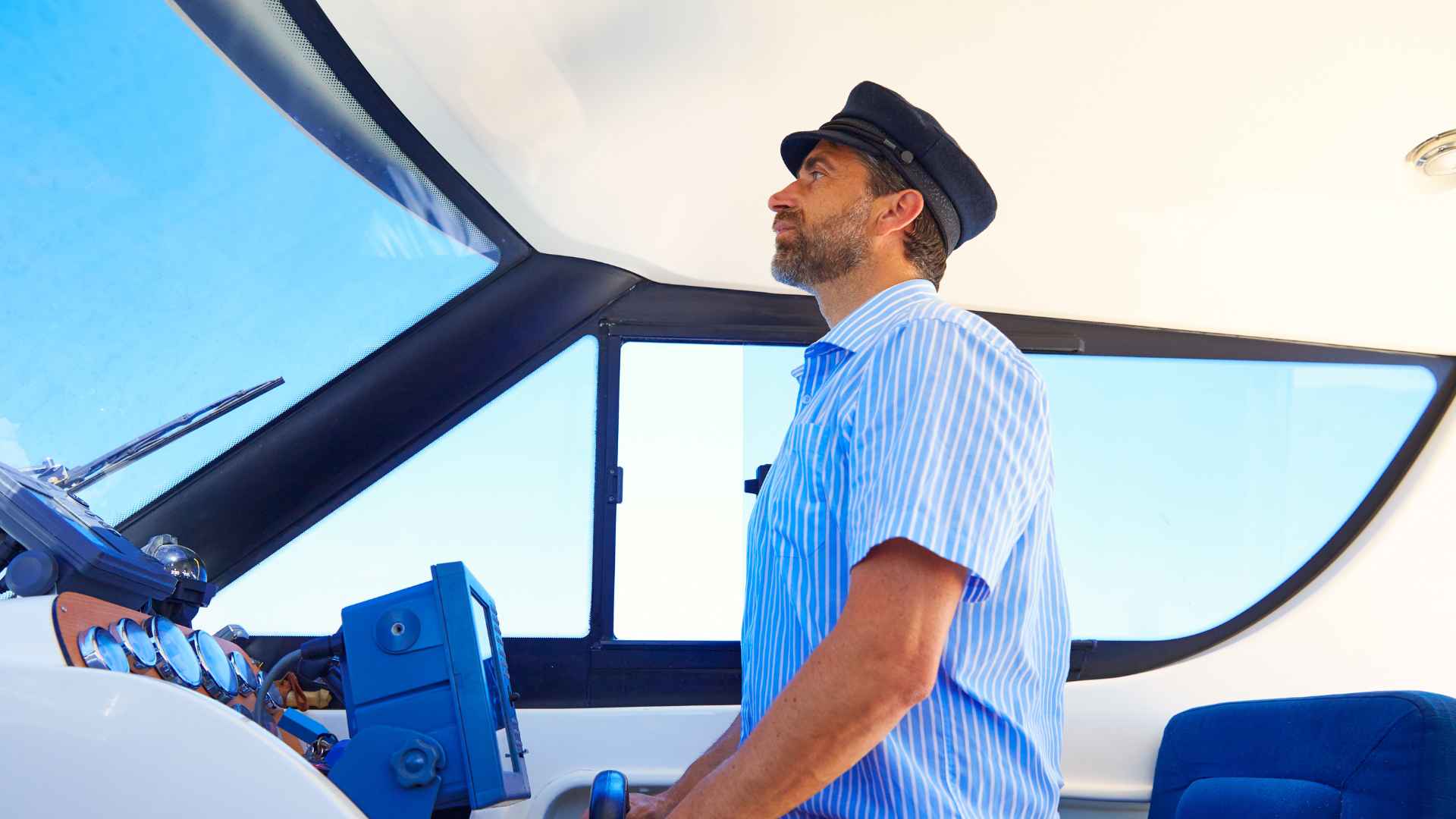
Familiarize yourself with licensing authorities:
To obtain the necessary licenses and certifications as a yacht captain, it’s important to familiarize yourself with the licensing authorities and organizations that oversee the process. The specific authorities may vary depending on the country or region. Here are a couple of examples:
- US Coast Guard: In the United States, the US Coast Guard is responsible for issuing licenses and certifications for yacht captains. They have different licensing levels, including OUPV (Operator of Uninspected Passenger Vessels) and Master licenses.
- Maritime and Coastguard Agency (MCA): The MCA is the licensing authority in the United Kingdom and is recognized internationally. They offer a range of certifications, including the Officer of the Watch (Yacht <3000 GT) and Master (Yachts) certificates.
Each licensing authority has specific requirements and application processes. It’s important to thoroughly research and understand the guidelines and regulations set forth by the respective authority in your jurisdiction.
Complete the required sea time and training:
Accruing the necessary sea time and training is a crucial step in obtaining your yacht captain licenses. The requirements may vary depending on the license level you are pursuing. Here are some key points to consider:
- Sea Time: Licensing authorities typically require a specific number of sea service days, which may include both qualifying sea service and additional time as an observer. The required sea time can vary depending on the license level and may involve different vessel sizes and types.
- Additional Training: In addition to sea time, you may need to complete additional training courses to meet the requirements. This can include training in radar operation, celestial navigation, firefighting, medical certifications like Basic First Aid or Medical Care, and other relevant topics. These courses enhance your skills and knowledge as a yacht captain.
It’s essential to maintain accurate records of your sea time and training, including the vessel names, dates, and duties performed. This documentation will be required during the application process.
Prepare for licensing examinations:
Licensing examinations assess your knowledge and competency as a yacht captain. Here are some tips to help you prepare:
- Study Relevant Regulations and Rules: Familiarize yourself with relevant regulations, such as navigation rules, safety procedures, and maritime laws specific to your jurisdiction. Study the applicable licensing guides or handbooks provided by the licensing authority.
- Navigation and Safety Procedures: Review navigation techniques, chart plotting, understanding aids to navigation, and collision regulations. Ensure you have a strong understanding of safety procedures, emergency protocols, and international maritime conventions.
- Preparatory Courses and Study Materials: Consider enrolling in preparatory courses offered by recognized training centers or maritime academies. These courses are designed to help you prepare for the licensing examinations and cover the necessary topics in depth. Additionally, study materials such as textbooks, online resources, and practice exams can aid your preparation.
Practice solving sample questions and scenarios to familiarize yourself with the format and structure of the licensing examinations.
Remember to check the specific requirements and recommendations from the licensing authority to ensure you are adequately prepared for the examinations.
By familiarizing yourself with the licensing authorities, completing the required sea time and training, and adequately preparing for the examinations, you can increase your chances of successfully obtaining the necessary licenses and certifications to become a yacht captain.
Advance Your Career as a Yacht Captain:
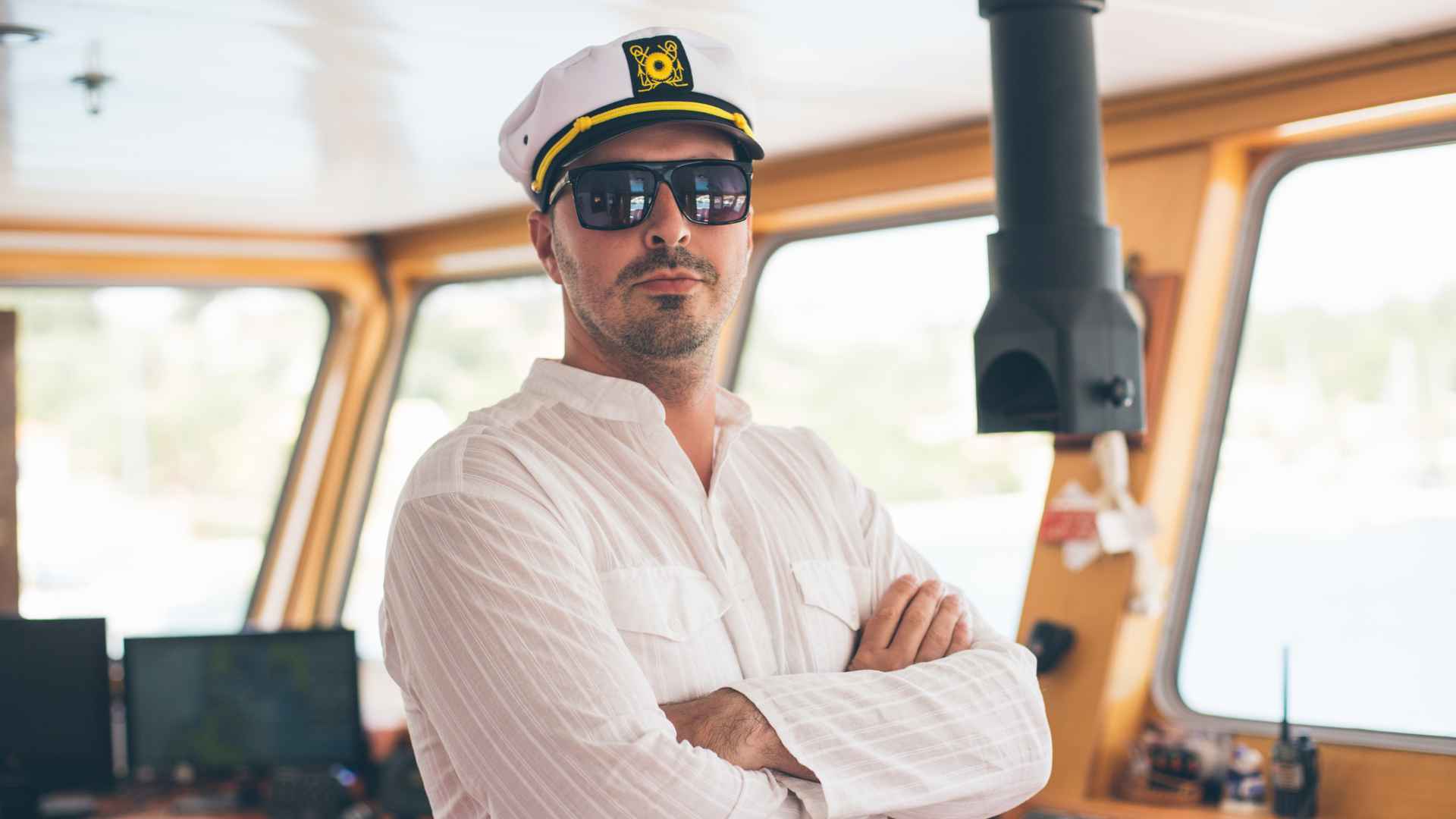
Network and establish connections:
Networking within the yachting industry is crucial for advancing your career as a yacht captain. Building relationships and establishing connections can lead to new opportunities and career growth. Here are some key points to consider:
- Industry Events: Attend industry events, such as yacht shows, maritime conferences, or trade fairs. These events bring together professionals from the yachting industry and provide opportunities to network, learn about new developments, and establish connections with yacht owners, brokers, and industry leaders.
- Professional Associations: Join professional associations and organizations related to yachting and maritime industries. These associations offer networking events, educational resources, and career support. Examples include the Professional Yachting Association (PYA), International Superyacht Society (ISS), or local yachting associations.
- Yacht Brokers and Crew Agencies: Build relationships with yacht brokers and crew agencies. Yacht brokers can connect you with potential employers and job opportunities, while crew agencies can assist with crew placement and career guidance. Stay in touch with them, provide updates on your experience and qualifications, and maintain a professional rapport.
Networking allows you to stay connected with industry professionals, increase your visibility, and access a broader range of opportunities.
Continue learning and professional development:
Continuous learning and professional development are essential for growth and advancement as a yacht captain. Here are some key aspects to consider:
- Stay Updated on Industry Advancements: The yachting industry is constantly evolving, with new technologies, regulations, and best practices emerging. Stay informed about industry trends, updates in safety protocols, navigation technologies, and regulatory changes. Read industry publications, follow reputable online sources, and attend relevant training sessions or workshops.
- Advanced Training and Specialized Certifications: Consider pursuing advanced training courses and specialized certifications to enhance your knowledge and skill set. These can include courses on advanced navigation techniques, superyacht operations, crisis management, leadership development, or specific technical skills like engine maintenance or electrical systems. These additional qualifications make you more competitive in the job market and broaden your career prospects.
- Professional Development Programs: Some organizations and institutions offer professional development programs tailored for yacht captains. These programs focus on leadership skills, management strategies, and industry-specific knowledge. Participating in such programs can enhance your leadership abilities, expand your network, and open doors to new opportunities.
Continuously investing in your learning and professional development demonstrates your commitment to excellence and positions you as a knowledgeable and competent yacht captain.
By networking within the industry, attending industry events, joining professional associations, and staying updated through continuous learning, you can advance your career, establish valuable connections, and position yourself for further growth as a yacht captain.
Watch What it takes to become a superyacht captain! | Video
Top 5 FAQs and answers related to How to Become a Yacht Captain
What qualifications do i need to become a yacht captain .
To become a yacht captain, you typically need to obtain the necessary licenses and certifications. The specific qualifications can vary depending on your location and the type of yacht you wish to captain. Common requirements include accumulating sea time, completing relevant training courses (such as navigation, safety, and emergency response), and passing licensing exams.
How do I gain the required sea time as a yacht captain?
Accruing the required sea time is an essential aspect of becoming a yacht captain. You can gain sea time by working as a deckhand or crew member on yachts, participating in internships or apprenticeships, or volunteering on boats. Keeping accurate records of your sea service days, duties performed, and the vessels you’ve worked on is crucial for meeting the licensing authority’s requirements.
Where can I find training courses for aspiring yacht captains?
There are various options for training courses related to becoming a yacht captain. You can find courses offered by maritime academies, vocational schools, yacht training centers, and professional organizations. Look for courses covering topics such as navigation, seamanship, safety procedures, and marine regulations. Additionally, licensing authorities often provide resources or recommendations for approved training providers.
How long does it take to become a yacht captain?
The time it takes to become a yacht captain can vary depending on individual circumstances, such as prior experience and the amount of time dedicated to training and gaining sea time. It can take several years to accumulate the required sea time, complete training courses, and pass licensing exams. The process also depends on your commitment to acquiring the necessary skills and qualifications.
Is it necessary to have sailing experience to become a yacht captain?
While sailing experience can be beneficial, it is not always a strict requirement to become a yacht captain. Many yacht captains start their careers with motor yachts or work on power-driven vessels. However, having sailing experience can provide you with a broader understanding of boat handling, wind patterns, and sail operations, which can be advantageous in certain yachting environments. It’s important to check the specific requirements and preferences of the licensing authority and potential employers in your desired field.
Conclusion:
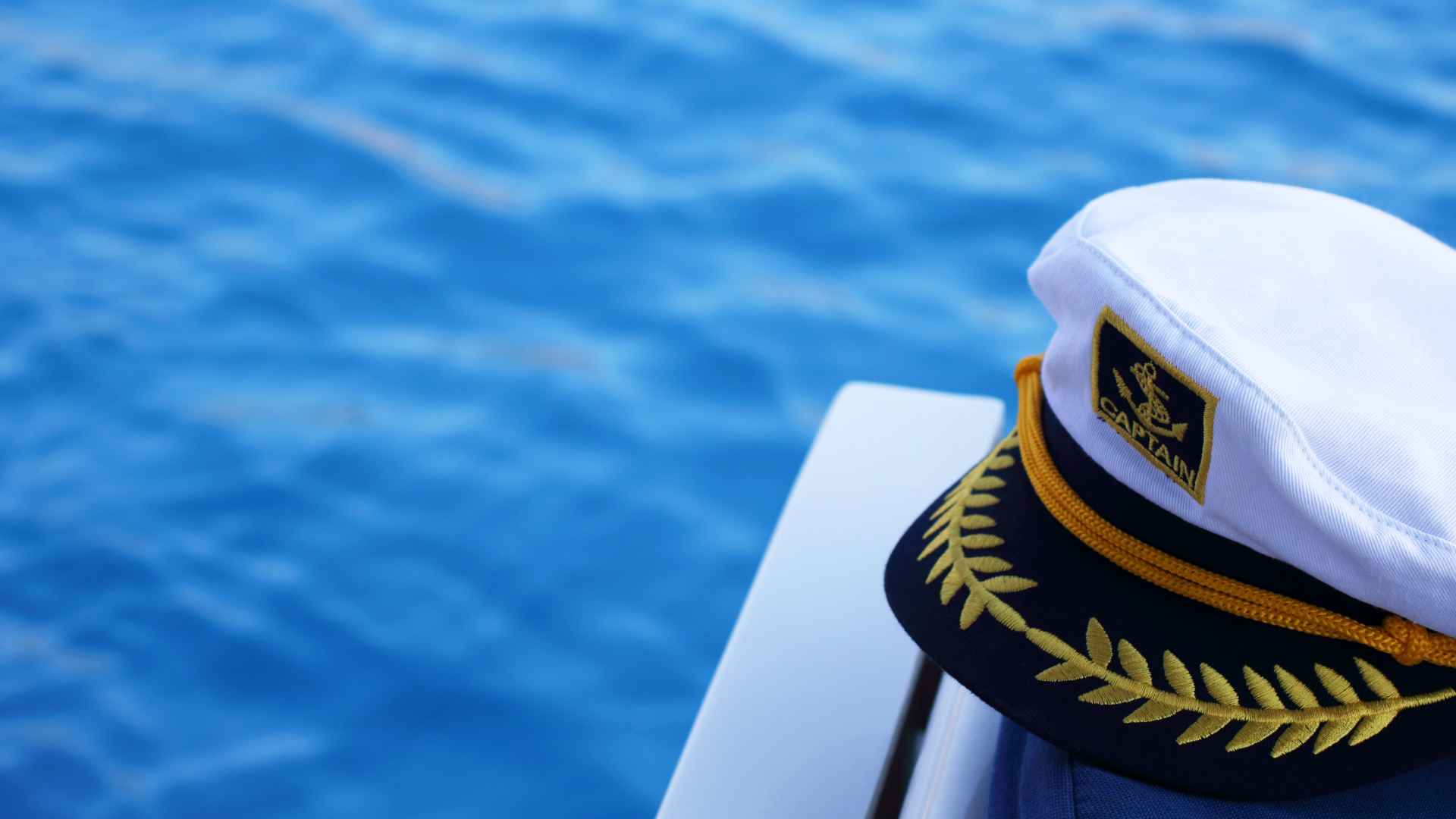
Becoming a yacht captain involves several key steps and considerations. Here’s a summary of the article’s main points:
- Gain Experience: Start by acquiring foundational boating knowledge, understanding navigation rules, weather patterns, and basic boat handling. Seek opportunities to work as a deckhand or crew member on a yacht to gain hands-on experience and learn about yacht operations and teamwork.
- Obtain Licenses and Certifications: Familiarize yourself with the licensing authorities relevant to your location, such as the US Coast Guard or Maritime and Coastguard Agency (MCA). Understand the specific requirements and application processes for obtaining the necessary licenses, which may involve sea time, training courses, and passing examinations.
- Focus on Professional Development: Continuously learn and stay updated on industry advancements. Consider advanced training, specialized certifications, and professional development programs to enhance your skills and knowledge as a yacht captain. This demonstrates your commitment to excellence and broadens your career prospects.
In conclusion, embarking on the journey to become a yacht captain requires dedication, practical experience, and a commitment to ongoing learning. By gaining experience, obtaining the required licenses, and focusing on professional development, you can position yourself for a rewarding career as a yacht captain. The open seas await, offering exciting adventures and the opportunity to lead a skilled crew while navigating luxurious yachts. Start your journey today and set sail towards an incredible future as a yacht captain.
Share How to Become a Yacht Captain? Step-By-Step Guide with your friends and Leave a comment below with your thoughts.
Read How to Build a Casting Deck in an Aluminum Boat in 6 Steps? until we meet in the next article.
Similar Posts

Can You Work on a Superyacht with Tattoos? Guide
Superyachts, the epitome of luxury and opulence, have long captivated the imaginations of those with a taste for the high life. These magnificent vessels, adorned with lavish interiors and offering unrivaled experiences on the open seas, have become a symbol of prestige and exclusivity. But as the allure of superyachts beckons, one question often arises:…

How to Become a Stewardess on Yachts in 5 Steps: Guide
Picture yourself amidst sparkling turquoise waters, basking in the warm rays of the sun, and indulging in the luxurious lifestyle of the high seas. Working as a stewardess on yachts offers a unique and enchanting opportunity to turn this dream into reality. From sailing across idyllic destinations to serving the needs of esteemed guests, this…

How Does Autopilot on a Yacht Work?
Navigating a yacht across vast, unpredictable waters requires precision, skill, and unwavering attention. Enter yacht autopilot, a technological marvel that has revolutionized the world of boating. It’s the invisible hand at the helm, offering sailors enhanced safety and convenience on their maritime journeys. In this article, we embark on a voyage into the world of…

Can You Live on a Yacht? and if so, for How Long? – Guide
Living on a yacht evokes images of sun-kissed days, sparkling waters, and a carefree existence. The allure of a yacht lifestyle has captured the imagination of many, with its promises of adventure, luxury, and a break from the conventional. From the glamorous depictions in movies to the envy-inducing social media posts of jet-setters, it’s easy…
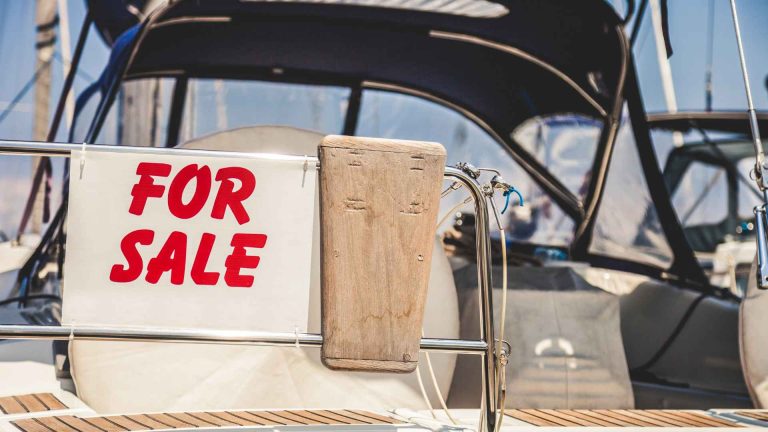
How to Become a Yacht Broker to Sell Your Own Boat? Guide
Becoming a yacht broker to sell your own boat can be a rewarding venture, offering a range of advantages. As a yacht owner, you have firsthand knowledge of your vessel, its unique features, and its history. By taking on the role of a yacht broker, you can leverage your expertise to effectively market and sell…

Superyacht vs. Mega Yacht: What’s the Difference? Guide
The glimmering azure waters, the gentle sea breeze, and the feeling of freedom as you sail across the open ocean – it’s no wonder that luxury yachts have captured the imagination of many. For those seeking the epitome of opulence on the high seas, the terms “Superyacht” and “Mega Yacht” evoke images of grandeur, extravagance,…


Bridge/Tides

305 324 5211

How to Become a Super Yacht Captain

A captain is responsible for the safety and well-being of all aboard
Whether you’re looking to get into yachting as a career or simply want to cruise the high seas, becoming a super yacht captain requires lots of hard work and dedication.
A captain is responsible for the safety and well-being of all aboard, as well as ensuring that everyone has a great time onboard. The best captains are experienced and knowledgeable about all aspects of yachting.
Leadership is a key part of being a superyacht captain. It requires a strong sense of direction, excellent interpersonal skills, and an ability to delegate tasks to crew members.
Good leaders are capable of establishing a sense of unity on board, even when dealing with individuals who have different personalities and opinions. They also have a quiet confidence that allows them to manage difficult situations.
Super yachts are expensive, so a captain must keep the vessel safe and secure while ensuring that guests and owners have a memorable experience. This requires excellent leadership abilities, as well as a strong understanding of safety procedures.
Navigation is a crucial part of the job for any super yacht captain. It's their job to make sure that their guests and crew are safe during their voyage, so it's important that they have excellent navigation skills.
It is also vital that they have a good understanding of nautical charts and publications so they can navigate safely on their routes. They will also need to know how to use a GPS system and other modern technology.
The size of the boat will determine how hands-on the Captain is, but it is usually a very demanding and complex role. They are responsible for the safety of all crew, guests and tenders on board and handle numerous administrative issues.
Crew Management
A super yacht captain has a great deal of responsibility when it comes to maintaining the safety of their crew and guests. They also have to keep the ship running smoothly and ensure that everything is in good working order.
This can be a challenging and demanding role as the demand on these leaders has never been greater. With a recent increase in the demand for slicker, more efficient operations, owners and managers are looking to these leaders to deliver.
As a captain, you’re responsible for the safety of your crew and the overall experience of your guests on board, so it is important that you are confident in managing your team to achieve this.
Crew management can be a challenging task and requires excellent communication skills to build trust with your crew. Having a safe, happy and well-respected team is vital to the success of your super yacht career.
Superyacht captains must be well aware of the dangers of operating at sea, and they must be prepared to handle any accidents that occur onboard. They also need to ensure that all crew members follow safety procedures.
Typically, yacht captains are paid $4,200 to $15,800 per month depending on the size and type of vessel they are sailing. However, the captain’s experience and qualifications will also play a large part in determining their salary.
In a commercially registered yacht that is 24 to 50 meters long and under 500 gross tonnes, there will be from 4-12 crew and a lot of administration to do on board. These yachts are often managed by a management company, so there is always someone to oversee the finances and technical and regulatory compliance aspects of the boat.
A good captain knows how to motivate their crew to work together as a team and to adhere to all standards, guidelines, and regulations. They also know how to encourage and help each crew member to report any safety issues they encounter.

Electrical Problems on Boats

How to Find a Reputable Marine Electrical Repair Service

Florida Shipyard Environmental Rules

Getting Your Boat Ready to Summerize

Best Yacht Towing Practices
.webp)
Why Prioritizing Pressure Vessel Maintenance?

RMK Merrill-Stevens is a Miami based, full-service shipyard dedicated to the erefit and repair of the world's finest yachts and vessels

- Motorcycles
- Car of the Month
- Destinations
- Men’s Fashion
- Watch Collector
- Art & Collectibles
- Vacation Homes
- Celebrity Homes
- New Construction
- Home Design
- Electronics
- Fine Dining
- Aston Martin
- L’Atelier
- Les Marquables de Martell
- Panther National
- Reynolds Lake Oconee
- 672 Wine Club
- Sports & Leisure
- Health & Wellness
- Best of the Best
- The Ultimate Gift Guide
‘It’s an Endless Summer’: What It’s Really Like to Be Captain of a Superyacht
Two seasoned pros share what life is like at the helm of the world's most glamorous vessels., kevin koenig, kevin koenig's most recent stories.
- Open Space, Eco-Friendly Tech: What a Rising Class of Millennial Superyacht Owners Is Looking For
- ‘People Don’t Want to Be Inside’: How the Outdoors Became Yachtmakers’ Most Coveted Design Element
- Azimut’s New 72-Foot Yacht Has One of the Largest Flybridges in Its Class. We Hopped Onboard.
- Share This Article

The superyacht industry is arguably the glitziest business in the world, and there is no profession more glamorous than being captain of one of these floating masterpieces.
Related Stories
- This Bonkers Transformers-Themed Bugatti Veyron Is Heading to Auction
- Bentley’s New Mulliner Will Have Its Most Powerful W-12 Engine Ever
- Car of the Week: This 2014 Lamborghini Is One of Only 3 Built. Now It’s up for Grabs.
But the road to being top dog aboard a 200-foot Heesen or 450-foot Lurssen is not an easy one. There’s no clear-cut path to the wheelhouse. Robb Report spoke with two captains who worked their ways up the ladder from the lowest rungs.

“I started as a divemaster in Cairns, Australia, where I’m from,” says Capt. Brad Baker of the 146-foot Rena . “Then I was a fisherman and started doing charters on the Great Barrier Reef. I worked every crew job on dayboats and charter boats, evolving with the boats. I came to Fort Lauderdale in 2001, and here I am still, paying taxes in America.”
Baker’s favorite part of his job: “Getting to change the view and see new destinations. The best thing is that I get to avoid winter.”
Capt. Michael Christian has a similar back-story. He is captain for the Allen Exploration fleet, which puts him in charge of the 164-foot Westport Gigi , that superyacht’s shadow vessel, 181-foot Axis , and 80-foot Viking Frigate . “I came up the hawse pipe,” he jokes.

What looks like a haphazard career path in any other industry makes sense in the superyacht sector, given the wide-ranging differences between yacht types and ever-changing technology. Switching yachts in ever-greater hull lengths is more than just upsizing boats. It means learning how to work with larger and more diverse crews (the larger boats have engineers, chefs and other specialists), using electronics more common on commercial ships than pleasure boats, and having larger, more complex, engine rooms to deal with.
In the pilothouse, both men point to the sweeping banks of electronics across their helm stations as proof of the complexities of the job. “We have a commercial-grade Wartsila Transas NS4000 plotter that is standard for larger ships,” says Baker, then pointing to the redundancies of other systems. “We also have two radars, double depth sounders, and bow thrusters. For communications, we have satcom, AIS, VSAT, and are GMBSS compliant. The farther offshore you go, the more you need.”
Even with all the state-of-the-art equipment, the boat has paper charts—it’s old school, like someone carrying a roadmap in their car in case their phone goes out. “We never use them,” says Baker. “But it’s another level of security just in case.”
The other thing about superyachts: Technology changes so fast that systems need to be replaced. Baker says the entire pilothouse will undergo a revamp at the end of the next season, with hundreds of thousands of dollars in new electronics replacing the older equipment. “It’s time,” he says.

Christian’s job faves are sunrises and sunsets in calm ocean, especially with whales or dolphins in the water, mentoring new captains and, surprisingly, maneuvering in tight quarters. Imagine driving that massive, 20-ton superyacht around a crowded marina, just feet away from other yachts with a collective value of billions. Unlike the highway, water is slippery and marinas are prone to winds and currents that can make docking a nightmare.
“Moving something that’s 180 feet long is challenging,” admits Christian. “But it’s a blast. When I was young and wanted to be a captain, it was just so I could do this. I’m behind the wheel and people are calling the distance between our boat and the dock or other boats. Everyone’s watching. At times, you have six inches to maneuver. It’s crazy but it’s so satisfying.”
Both captains say docking in the Mediterranean is especially challenging. Typically yachts in Mediterranean ports back into slips, sometimes literally pushing their neighbors out of the way with their fenders.
“You often need to wiggle your butt in,” says Baker. “It’s a little scary. When you’re a first mate you don’t get a lot of wheel time, so you don’t necessarily have much docking experience. Then you become captain and the first time you do it is a leap of faith. It might be blowing 30 knots and the current will be running across the marina, but there’s no one to help you. You’re in charge.”
Other negatives, according to Christian, are rough weather at sea, which is when guests get seasick, and missing his wife and children on holidays “or when something cool happens,” like birthdays or graduations.
But for both, the captain’s lifestyle has been worth it. “What other job do you get to see these stunning destinations, where the view is always changing?” says Baker. “We migrate with the birds. When they leave, so do we and follow them. It’s an endless summer.”
Read More On:
- Superyachts
More Marine

Forget a Crow’s Nest. This 207-Foot Explorer Yacht Concept Has Its Own Pop-Up Observatory.

American Magic Just Unveiled Its Sleek New America’s Cup Race Boat

The CEO of Jefferies Just Sold $65 Million in Shares to Buy a Yacht

Forget Pools. This New 131-Foot ‘Mini-Megayacht’ Is Fronted by an Infinity Jacuzzi.

Culinary Masters 2024
MAY 17 - 19 Join us for extraordinary meals from the nation’s brightest culinary minds.
Give the Gift of Luxury
Latest Galleries in Marine

The 12 Best Water Safaris Around the World, From Antarctic Cruises to Botswana River Journeys

EXO-X Explorer Yacht in Photos
More from our brands, theory’s jeffrey kalinsky leaves role as chief creative officer and chief merchant, reynolds, mcelhenney bring wrexham playbook to club necaxa, ‘daughter of genghis’ review: a poignant portrait of a nationalist gang leader grappling with motherhood, senegal postpones dakar biennale by six months amid widespread protests, the best yoga mats for any practice, according to instructors.

Why Obtaining Your Captain‘s License Is Essential
How to get your captain's license and pilot your own yacht.
If your boat is longer than 9 metres, without a skipper’s or captain’s license, you cannot legally take it out to sea.
That kind of defeats the purpose of owning a boat, right?
Earning a captain’s license and being able to confidently pilot your own yacht will be your passport to traversing our planet’s beautiful oceans. You will have the freedom to explore the seas to your heart’s content without a care in the world.
Getting the right certification for your requirements, be it a Day Skipper , Coastal Skipper , Local Waters Skipper or Yachtmaster Offshore Certificate of Competence , will allow you and your sailing companions to get the most out of your yacht and enjoy it to the maximum.

Become a yacht captain by acquiring your captain's license
If you already have significant sailing experience, you may want to go the self-study route and simply take your exams at an accredited sailing school.
If you are new to the world of sailing, you’ll want to choose a reputable sailing school. They should provide you with the necessary practical and theoretical training to confidently captain your yacht.
Here are the various Certificates of Competency (COCs) or 'Captains Licenses'
- Inland Waters Skipper
If you hold this license, you will be qualified to skipper a sailboat inland during day and night.
- Day Skipper
This skipper’s license will qualify you to captain a sailboat at sea in local waters from sunrise to sunset. Local waters are defined as 15 nautical miles, or 25 miles, from your home port, given that they are no more than 15 nautical miles from an approved safe haven.
- Local Waters Skipper
Holding this license, you will be qualified to skipper a sailboat at sea by day or by night in local waters, as defined for the Day Skipper’s license set out above.
- Coastal Skipper
A Coastal Skipper‘s license will qualify you to skipper a sailboat on any coastal passage, as long as it is within 40 nautical miles of the coast, day or night.
- Yachtmaster Offshore
A Yachtmaster Offshore skipper’s license will qualify you to captain a sailboat on any extended or ocean passage.
- Yachtmaster Ocean
A Yachtmaster Ocean certificate is a badge of honour, indicating that you have mastered celestial navigation.

To sail around the world, you will need a captains license!
You will need your international accreditation through the Royal Yacht Association or International Yacht Training if you wish to skipper a yacht or superyacht as a career.
International Certificate of Competence
If you plan to sail your yacht around the world, you’ll have to obtain an International Certificate of Competence (ICC) . The ICC has been likened to an international driver’s license for boats.
If you have your sights set on the waters of Europe and the Mediterranean, you will need an ICC to do so legally. However, it is essential to note that the US and Canada have different international captain license requirements and do not recognise the International Certificate of Competence.
You will have to contact a Royal Yachting Association affiliate to obtain an ICC in North America.
COCs - start your captain's license from the beginning
The various Certificates of Competence are progressive, so it makes sense to start with your Day Skipper’s license , and progress to your Yacht master Offshore captain’s license from thereon.
An important consideration to keep in mind is that the Certificate of Competence you select will very much depend on your individual needs and circumstances.
For example, the requirements for a Recreational Sailing Certificate of Competence differ from a Commercial Sailing Certificate of Competence . So, your motivation (recreational, commercial or professional international sailing) will determine which skipper training course you select.
There are also some necessary prerequisites that have to be met before any sailor can apply for skipper’s license training. They are:
- All candidates must be at least 16 years of age
- For ocean sailing, candidates need a radio operator’s certificate valid for operating a marine VHF radio in South Africa
- All candidates will have to pass a basic eye test. If you are colour blind, you will not be able to proceed past the Day Skipper Certificate of Competence
- Candidates for the Coastal Skipper Certificate of Competence and above must have a current and valid Level 1 First Aid Certificate
- All candidates will have to produce a logbook of experience to get their qualification. The required expertise to be logged varies depending on the certification course.
Here you will find lots of information on the various sailing Certificates of Competence (or skipper tickets, as they are also known) available to you.
Just keep in mind that such certificates (and what they will legally qualify you for) vary from country to country.
If you are a non-SA citizen, you will have to research your country’s legal requirements for the various sailing Certificates of Competence.
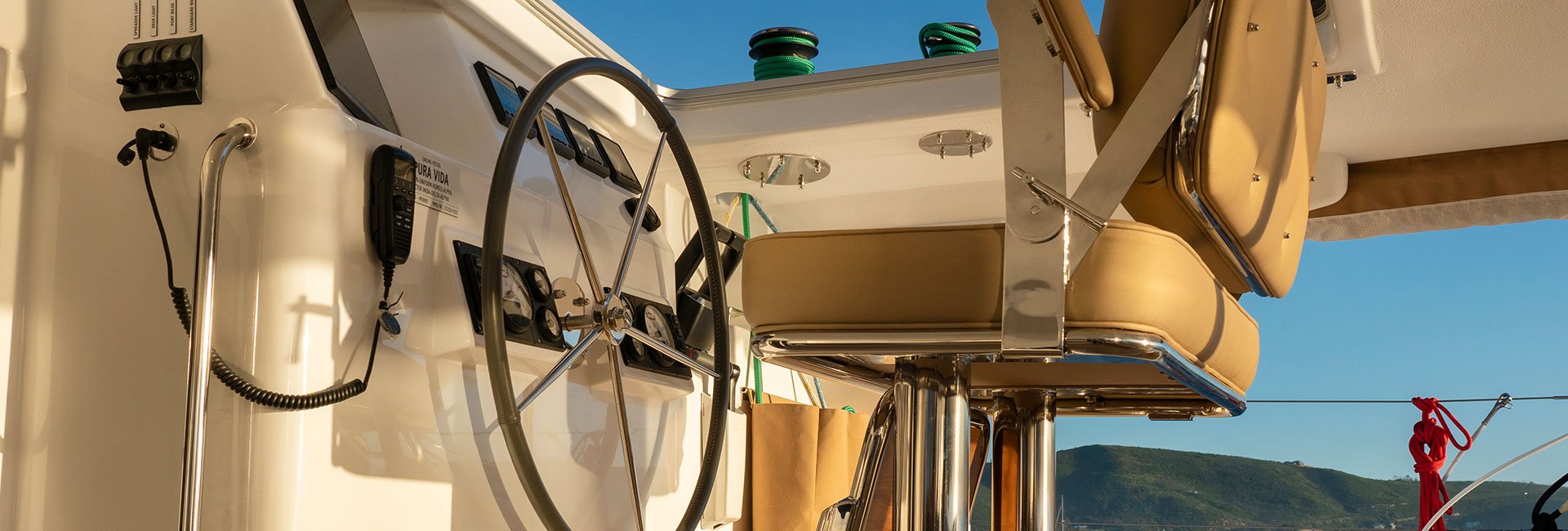
How long does it take to become a yacht captain?
This will depend on the skipper’s course you decide on. To obtain certification in basic sailing skills is quite affordable and could take as little as three weekends to complete.
Courses like the Yachtmaster Ocean Certificate of Competence are much more comprehensive, intensive and costly. This course takes about 17 weeks to complete.
Why getting your skipper’s or captain’s license will be worth every cent
Unless you have a sailing crew (including a qualified skipper) at the ready, it will be absolutely worth your while to obtain the necessary credentials to skipper your yacht yourself.
South Africa has many reputable, accredited sailing schools. They can provide you with all the information and training you need to obtain the captain’s or skipper’s license that is right for your requirements.
Undergoing the necessary practical and theoretical training will give you all the knowledge and experience to sail your boat with confidence.
What’s more, your skipper’s license training is likely to be an exhilarating adventure in itself.
It is also an excellent way to meet other sailing enthusiasts who might just become friends for life.

Yacht Maintenance - Top Tips for Protecting Your Investment
Essential things to know about boat insurance, top things to know about yacht solar power, building a yacht: top things to know about the yacht-building process, get all the latest to your inbox, discovery awaits.

Got a Question?
Complete our short form for a prompt response and world class tax advice.
Yes please contact me regarding mortgages
By selecting this, you agree to the Privacy Policy .
Sign in to your account
How to become a yacht captain.

Working as a captain on a superyacht can be a very rewarding career.
Being at the helm of a yacht and having ultimate responsibility over its operation is however not a role for everyone or anyone.
The captain will need to have various high level skills as this is an all-encompassing role.
However if you feel that this could be your career path, then we invite you to read through this article to learn how to become a yacht captain.
What Does a Yacht Captain Typically Do?
Required skills, stcw basic safety training.
- Efficient Deckhand Course (EDH)
Royal Yachting Association (RYA) Certification
Eng1 medical certificate, officer of the watch (oow), mca master 500 certification, mca master 3000 certification, prepare your cv (resume), go dockwalking, gain experience, typical yacht captain salary.

A yacht captain operates the yacht to ensure the navigation is carried out in a safe and efficient way.
The captain takes care of voyage planning, while ensuring the vessel adheres to all relevant international maritime regulations.
The yacht will need to be prepared for annual class and flag surveys, and these will need to be overseen by the captain.
Additionally, all vessel documentation will need to be kept in good order.
The captain will also be responsible for crew members, as well as ensuring the owners and any guests onboard are safe.
When it comes to yacht crew members, the captain has a direct role in hiring and appraising, as well as any dismissals.
They will need to ensure the crew is suitably trained and qualified for their respective roles.
The yacht captain is essentially the leader of the crew, and hence will need to act as such.
They will have both crew management as well as administration responsibilities to handle, on top of navigational duties.
A yacht captain will also have the responsibility of setting budgets and overseeing what’s being spent.
They will also be responsible for the maintenance of the yacht, as well as any refits and surveys that need to be carried out.
Understandably, the role of a yacht captain varies slightly depending on the size of the vessel and its function.
In the case of captains on relatively small yachts, the role is generally more diverse, and often the captain will need to be a great multitasker and problem solver.
On relatively large vessels however, there’ll be a dedicated crew to take care of other jobs.
So the captain will be able to delegate certain tasks to key personnel and focus more on their own responsibilities.
A yacht captain should possess a series of soft and hard skills to be successful in the role.
These are some of the most important skills a yacht captain will require:
- Great leadership skills
- Managerial skills
- Navigational and yacht handling skills
- Organisational and administration skills
- Knowledge of pertinent legislation and environmental regulations
- Engineering knowledge
- Very good communication and interpersonal skills
- Have a calm demeanour and charisma
- Be a good multitasker
Required Certification & Qualifications
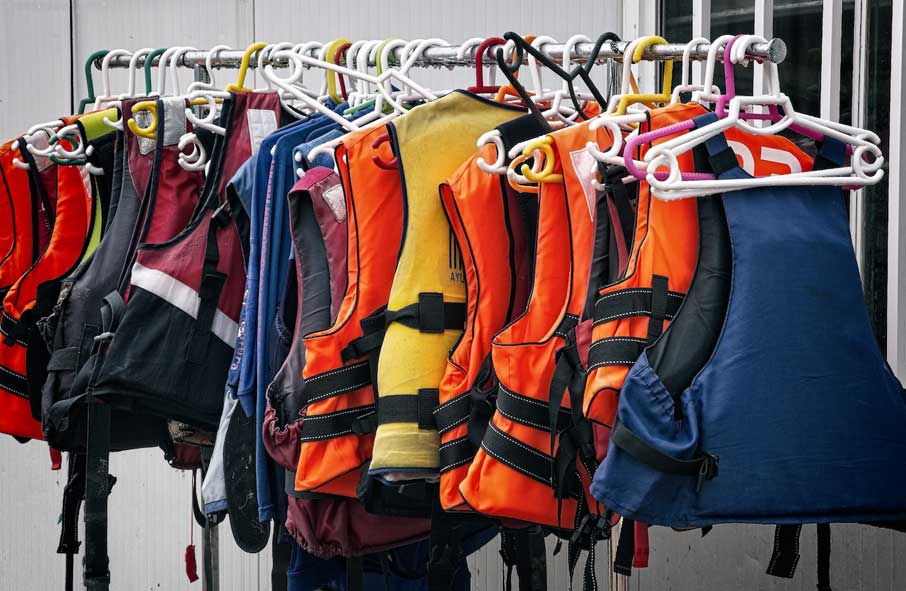
There are a number of certificates and qualifications which are mandatory for a yacht captain to have.
The STCW Basic Safety Training course is a must for anyone working onboard a sea vessel.
During this course, first aid practices, personal safety and social responsibility are some of the areas that are tackled.
Training on sea survival and how to respond to emergencies are other key areas of this course.
It typically lasts around 5 days, and has to be renewed periodically.
Efficient Deck Hand Course (EDH)
The Efficient Deck Hand is a course which revolves around basic seamanship.
It includes safe working practices on board a sea vessel, along with rope, wirework, painting and other key maintenance routines.
This course usually lasts around 5 days.
The RYA Certification is another must have.
The Royal Yachting Association is an organisation which issues the RYA Certificate, along with other certifications such as the Powerboat Handling, Yachtmaster Offshore and Yachtmaster Ocean.
The ENG1 Medical Certificate certifies that one is fit and in good health to work onboard a sea vessel.
This is issued after a routine medical examination with a physician.
Additional Education & Training
The courses and certifications mentioned above are practically a must for one to be considered for the role of a yacht captain.
There are however various other courses which one may wish to follow to improve their chances of getting such a job, or becoming more experienced over time.
This is a specialised course which enables one to become an officer onboard a vessel of up to 3000gt.
However, in order to apply for the Officer of the Watch course, one would need to have achieved the RYA certificate for at least 36 months, as well as have over 250 days of experience onboard a sea vessel.
The MCA training record book will also need to be completed.
The MCA Master 500 yachts is a course which is highly recommended for someone who already has relevant experience on board, but wishes to increase their chances of moving up the ranks.
Once the certificate of competence has been issued for OOW, and a further 12 months have passed, coupled up with another 120 days of verified sea service, one will be able to achieve certification.
Master modules which are included during this course include ship stability, navigation, radar simulator, seamanship, meteorology, business and law.
Finally there is the MCA Master 3000 certification, which consists of an oral exam.
There are oral prep courses which are organised to prepare those who wish to achieve this high level certification.

In order to become a yacht captain, you’ll need to get your first job on board a sea vessel first.
You need to be prepared to start small, and slowly but surely as you gain more experience at sea whilst achieving various qualifications and certifications, improve your chances of becoming a yacht captain.
The following are some steps you will need to follow to get started on this career adventure:
You will first need to prepare a good CV which demonstrates who you are, and what you can offer in detail.
Besides the various qualifications you have, make sure to go into detail about any past industry specific experience you had.
Dockwalking is a great way to seek work onboard a yacht or similar sea vessel.
This is the process of visiting popular marinas, and going from one boat to another to search for job opportunities.
Dockwalking speaks volumes about your willingness to learn and graft.
It displays clear evidence that you’re willing to take on any work opportunity to become more experienced, and that you are prepared to go the extra mile to work even in a small and seemingly unimportant role.
Some yacht owners will need someone to do the dirty work like scrub the decks, or engage in buffing, sanding and polishing.
The key takeaway here is that every work opportunity matters.
You need to be willing to take on any job that comes your way, as ultimately, every hour that you manage to spend working onboard will add your resume.
If you want to get into yachting, it’s important to gain as much experience as possible.
Any task or job that you’re offered onboard a yacht is important, even if it may seem insignificant.
Do not allow day to day tasks to appear irrelevant, as ultimately they all count.
Every job you take can help you to improve your character, whilst building your skillet and experience.
Over time you’ll have several opportunities to gain more experience.
The key is to always seek to do your very best.
Whenever possible, aim to over deliver and exceed expectations, as this is what will help you climb the ranks over time.
The salary of a yacht captain depends on a variety of factors.
Whilst the captain’s qualifications are a critical factor, their experience will also play a critical role in determining their salary.
The size of the yacht will also need to be factored in as this will have an effect on the role and the responsibilities that the yacht captain has.
Generally speaking, a yacht captain’s salary ranges between £5,000 and £15,000 per month.
By now, you should have a much better idea of what you need to become a yacht captain.
Clearly, it’s a role that takes many years to fulfil.
But with time, dedication and persistence, you could one day become captain onboard a luxury superyacht.
Besides the various courses that you could enrol on, it’s also crucial that you possess the necessary skills and aptitudes which are important for such an important role.
If you’re just getting started, it’s best to gain as much onboard experience as you can, while also following the relevant courses.
In such cases, dockwalking could be your best place to start.
If however you’re close to becoming a yacht captain or have just become one, you may have other issues to consider such as your personal income tax liability from your earnings at sea.
In such cases, you should speak to a tax specialist to determine if you qualify for the seafarers earnings deduction .
If so, your entire salary at sea may be completely tax free.
Contact Marine Accounts to find out if you qualify, or try our residency test to clarify your tax position.
Disclaimer: Any advice in this publication is not intended or written by Marine Accounts to be used by a client or entity for the purpose of (i) avoiding penalties that may be imposed on any taxpayer or (ii) promoting, marketing or recommending to another party matters herein.
Also on Marine Accounts

How Much Do Yachties Make?
Working at sea as a yactie allows you to engage in a truly unique employment position. In this article we explore what being a yachtie means and how much income you can expect to make.
Patrick Maflin

How to Get Into Yachting
Working on a superyacht has numerous appealing features, with various tax advantages associated with such a career move. But how do you get into yachting? Read our comprehensive article to find out.
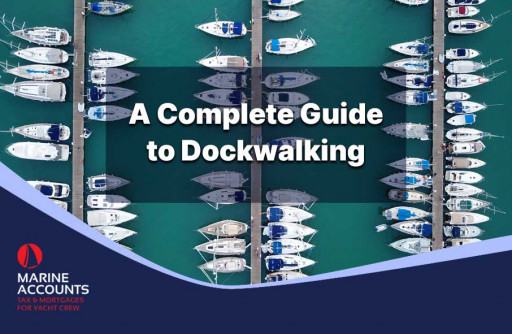
A Complete Guide to Dockwalking
Dockwalking is the act walking along popular marina docks where superyachts are moored looking for work. But how do you get work on a yacht? Read on to find out how in our comprehensive guide.
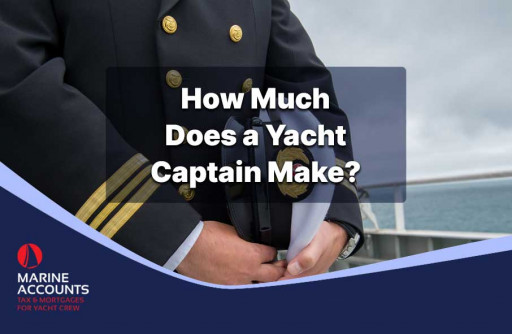
How Much Does a Yacht Captain Make?
Working as a yacht captain is a very privileged and unique employment position. In our article we explore what being a yacht captain involves and how much yacht captains make.
Before you go...
You're about to visit a page on our legacy site. We're currently in the process of updating all our tax tools and while this page is still active please return to the main Marine Accounts site after completition.
Refer a friend and receive £50!
Upon successful completion of the referral the cash will be transferred to you.

Skipper Training SA
RYA SAS Accredited Skippers Training Courses
Qualifications to be a Captain on a Superyacht
Previously, we saw how one could be a captain on a superyacht. While we covered everything there, we believe that there is one part that should be covered in greater detail. That’s right, it’s the certification part. Hence, as a sequel to that article, we will see the required qualifications to be a captain on a superyacht. And yes, it is indeed a complicated process, but not as hard to understand.
Phase 1: Become a Deckhand
Of course, even with the right qualifications (hypothetically speaking), nobody gets to be in the top position without good experience. And superyacht industry, especially, is no exception to that. Becoming a deckhand is the most reliable path to begin your journey towards the captain position. You can accumulate experience and qualifications along the promotion ladder and eventually, with enough dedication and hard work, you will be able to captain a superyacht someday!
We would recommend the following courses and certifications prior to deckhand.
- STCW 2010 Course which is mandatory for all commercial and recreational marine workers.
- RYA Powerboat Level 2 course.
- ENG1 Medical Certificate.
- The VHF Course – GMDSS compliant marine radio certificate or RYA SRC Certificate.
- The Deckhand Course in South Africa. This is optional but it will definitely help you kickstart your journey in the superyacht industry.
After this, you are basically set. Just find a deckhand job and start working, learn the ropes, understand how things work on a superyacht and accumulate experience.
If you show enough dedication and quality in your work, you may be promoted to Lead Deckhand/Bosun as well.
Phase 2: Officer of the Watch
For Officer of the Watch, you have to:
- Take and pass the RYA Yachtmaster Offshore course first. You can do it during your deckhand days as well. Please check the exam prerequisite before you appear for it though.
- You have to present the records of 36 months of sea service (mandatory: sea service must be done on a vessel of 50m length and above).
- You have to present a completed Training Record Book. You can download a free copy of it here.
If you meet the above requirements, then you are eligible to take this next step.
- General Ship Knowledge Course and Examination.
- Navigation Radar and ARPA Operations.
- GMDSS General Operator Certificate (GOC).
- Human Elements of Leadership and Management (HELM) – Operational Level.
- Proficiency in Survival Crafts and Rescue Boats.
- ECDIS – Electronic Chart Display and Information System.
- Efficient Deck Hand (EDH); you must hold this certificate for at least 18 months before you can appear for the OOW exam.
If you take and pass the courses mentioned above, then you will be eligible for the written test for OOW, which would make you eligible for the oral test. After passing that, you will receive your OOW Certificate of Competence.
Many institutions would recommend you take the oral examination prep class, which is actually helpful. If you are feeling too nervous, we would highly recommend taking a class. However, this is optional.
Phase 2.1: Chief Mate – Captain’s Second-in-Command.
If you do not want to be an Officer of the Watch, you can consider skipping the written and oral examination and continue onwards with your goal as a chief mate. Except for the oral and written exams for the OOW, all the previously mentioned courses and the sea time are mandatory, so do not think about skipping them.
As you walk towards the Chief Mate path, you should take the following courses:
- RYA Yachtmaster Ocean , which requires either the RYA Yachtmaster Offshore CoC or the OOW CoC for vessels less than 3000 Tonnage.
- Proficiency in Medical First Aid
- Advanced Fire Fighting
- HELM Course on the management level.
Once you complete these courses, you are eligible for the MCA Endorsement to be a First Mate. Post-endorsement, you are ready to serve as the First Mate on a superyacht.
Phase 3: Path to Captain!
After the OOW CoC for vessels less than 3000GT or becoming a chief mate, you are to serve at least 12 months of sea time before you can begin moving towards securing that sweet Captain spot in your career.
Once you are eligible to take the master module courses, you should start as immediately as possible. In this section, there will be two steps. You will first have to study for the Master 500GT vessel before you start moving towards the Master 3000GT.
You will be learning the following modules.
- Ship Stability
- Business Law
- Navigation and ARPA Simulation (Master level)
- Seamanship and Meteorology
- Proficiency for Persons in Charge of Medical Care
- Celestial Navigation
- HELM Management Level; optional if you already have done this course during your path to Chief Mate.
- ECDIS (Optional as well if done already).
Once you successfully complete all these courses and respective oral or practical exams, you have to appear for the MCA Oral examination. To do so, you have to send all your relevant documents (certificates, sea time records, previous CoCs), upon which the MCA will issue an NoE. This makes you eligible to appear for the MCA Oral Exam.
If you successfully pass it, you have to send all your paperwork to the MCA again and you will get your Master 500GT CoC. Congratulations!
Now you can decide to stop here or you can aim for the Master 3000GT CoC. For this, you have to get additional 12 months of sea time in total with a minimum of 120 days of sea service. There are no additional modules here but an oral exam. Same procedure as Master 500GT. Pass it, send your documents, and receive your Master 3000GT CoC.
For extensive knowledge on this section, we highly recommend checking UKSA’s website .
Final Words.
Becoming a captain of a superyacht is not only about getting all the sea time and these qualifications. It is important to understand whether you actually fit in the field—whether this is something you really want. For a successful career, we would advise you the following,
- Get as much sea time as possible and keep a log of it.
- Get some bridge navigation and watch time experience whenever you can.
- Learn from your fellow deckhands and your superiors onboard.
- Always practice collision regulations and other safety regulations.
- Learn to use bridge equipment as much as you can.
Remember, getting qualifications alone does not ensure you a place amongst higher ranks on a vessel. Your experience and actual practical knowledge also have to shine along with it. It is indeed a long passage of dedication and hard work. And trust us when we say this, this industry will literally test your patience and endurance on this path.
If you are someone who is ready to embark on this adventure, we would highly advise you to contact us. We will be happy to help you carve this path in South Africa. Happy Sailing!
- ← How to be a Captain of a Superyacht?
- ENG1 Medical Certificate in South Africa →
You May Also Like

Features of a Good Superyacht School in South Africa

Advanced Powerboating Tips in South Africa

Becoming a Chief Engineer SV in South Africa
- PRO Courses Guides New Tech Help Pro Expert Videos About wikiHow Pro Upgrade Sign In
- EDIT Edit this Article
- EXPLORE Tech Help Pro About Us Random Article Quizzes Request a New Article Community Dashboard This Or That Game Popular Categories Arts and Entertainment Artwork Books Movies Computers and Electronics Computers Phone Skills Technology Hacks Health Men's Health Mental Health Women's Health Relationships Dating Love Relationship Issues Hobbies and Crafts Crafts Drawing Games Education & Communication Communication Skills Personal Development Studying Personal Care and Style Fashion Hair Care Personal Hygiene Youth Personal Care School Stuff Dating All Categories Arts and Entertainment Finance and Business Home and Garden Relationship Quizzes Cars & Other Vehicles Food and Entertaining Personal Care and Style Sports and Fitness Computers and Electronics Health Pets and Animals Travel Education & Communication Hobbies and Crafts Philosophy and Religion Work World Family Life Holidays and Traditions Relationships Youth
- Browse Articles
- Learn Something New
- Quizzes Hot
- This Or That Game New
- Train Your Brain
- Explore More
- Support wikiHow
- About wikiHow
- Log in / Sign up
- Occupations
- Transport Careers
How to Become a Boat Captain
Last Updated: April 29, 2024 References
Getting a Job
Expert q&a.
This article was co-authored by Nitzan Levy . Captain Nitzan Levy is a Sailor, Social Entrepreneur, and the Founder of Sailors NYC, a recreational sailors’ club based in Jersey City, New Jersey that specializes in cruising boats and a variety of community programs. Capt. Levy has over 20 years of sailing experience and has sailed in many places around the world including: the Atlantic Ocean, the Mediterranean Sea, The Caribbean, and the Indian Ocean. Capt. Levy is a U.S. Coast Guard Licensed Master of vessels up to 50 Tons with Auxiliary Sail and Assistance Towing Endorsements. Capt. Levy is also a NauticEd Level V Captain Rank Chief Instructor, an American National Standards Assessor, an SLC instructor, an ASA (American Sailing Association) Certified Instructor Bareboat Chartering, and an Israeli licensed skipper on Boats for International Voyages. There are 10 references cited in this article, which can be found at the bottom of the page. This article has been viewed 131,505 times.
Becoming a boat captain can be a time-consuming but rewarding process. A captain’s license isn’t necessary if you just want to take your own boat out for pleasure cruises, but it is required if you receive any compensation for your boat services. With the right education, experience, and test scores, you will be on your way to becoming a licensed boat captain.

- Learn communication skills through English classes and other language classes.
- Also consider taking computer classes and mechanical drawing classes.

- Get a degree in the field of marine transportation, marine engineering, maritime operations and technology, or shipyard management.

- Even if you can’t afford a full 4-year education, try to audit some maritime-related classes at your local university or community college.
- Look for classes offered by local organizations like the yacht club or sailing club.

- If you live near a coast, look for local businesses that specialize in these classes. If there's nothing near where you live, you can take an online course.
- These courses end in a written exam that can often stand in for the official exam. Check the Coast Guard website to find approved courses. [4] X Research source

- If this sea-time is spent under another captain's command, you will need to have this captain sign your license application when the time comes.
- Any time spent on a boat counts. So include hours working in positions such as a maid or deckhand on a cruise ship.

- Some positions to aim for are deckhand, third mate, second mate, chief mate, or engineer.
- Look for positions like tour guide, dockhand, sanitation officer, or boat mechanic.

- If it's not necessary, simply provide a statement with your application that says you don't need it.
- If a TWIC card is necessary for you, you can apply for it through the TSA.

- The Master license involves far more sea-time hours, but there’s no need to get the six-pack license first. Jump right to the Master if that’s the one you want.

- Additional identification will be required, such as a social security card or an I-551 alien registration card.

- You can submit your application and any supporting documents in person at a local Regional Exam Center (REC) or send it to the REC through the mail.
- If you're outside the U.S., you'll need to apply for the International Certificate of Competence (ICC) through the Royal Yacht Academy.

- References from licensed captains, commercial fishermen, or others who own and operate their own boats are generally best.
- These character reference letters should also be notarized.

- This exam will usually consist of multiple choice questions about deck and safety procedures, general navigation, and rules associated with operating a boat in shared waters. [17] X Research source

- If your application is approved, your license and credentials will be printed and mailed to you.

- Join your local yacht club or sailing club to make more contacts there.
- Go mingle with other captains at local docks and start up conversations with them. They may know of more job openings.

You Might Also Like

- ↑ https://bigfuture.collegeboard.org/careers/transportation-ship-captains-marine-pilots
- ↑ http://education-portal.com/become_a_ship_captain.html
- ↑ http://study.com/become_a_ship_captain.html
- ↑ https://www.dco.uscg.mil/Portals/9/NMC/pdfs/faq/exams_faqs.pdf?ver=2017-07-13-110959-517
- ↑ http://matadornetwork.com/notebook/how-to-become-a-boat-captain/
- ↑ http://www.payscale.com/research/US/Job=Ship_Captain/Salary
- ↑ Nitzan Levy. Sailing Instructor. Expert Interview. 24 April 2020.
- ↑ http://www.dco.uscg.mil/Portals/9/NMC/pdfs/faq/twic_faq.pdf?ver=2017-05-31-144812-903
- ↑ https://asa.com/news/2013/08/12/uscg-captains-license/#
- ↑ http://www.dco.uscg.mil/Our-Organization/Assistant-Commandant-for-Prevention-Policy-CG-5P/National-Maritime-Center-NMC/merchant_mariner_credential/
About This Article

If you want to become a boat captain, obtain your high school diploma or GED. After school, enroll in a captain’s license class or a college program where you’ll learn about navigation, tidal calculations, international and inland boating rules, and meteorology. Before you can obtain a captain’s license, you must have a minimum of 360 days worth of sea time within a 5-year period, where a “day” is 4 consecutive hours on the water. This can be piloting the boat or working as a deckhand on a cruise ship. For more information on getting your license, read on! Did this summary help you? Yes No
- Send fan mail to authors
Reader Success Stories
Aug 30, 2016
Did this article help you?

John Williams
Dec 7, 2021

Featured Articles

Trending Articles

Watch Articles

- Terms of Use
- Privacy Policy
- Do Not Sell or Share My Info
- Not Selling Info
Get all the best how-tos!
Sign up for wikiHow's weekly email newsletter

IMAGES
VIDEO
COMMENTS
In this step-by-step guide, we'll cover the qualifications and requirements for becoming a superyacht captain, as well as what superyacht captains do on a day to day basis. We'll also look at the Merchant Marine Officer License, experience and knowledge requirements, and technical certifications needed to become a superyacht captain.
The captain must hold a license that is commensurate with the gross tonnage of the vessel and approved by the flag state. In addition, the yacht's insurance company needs to be comfortable with the candidate's experience and license and approve the hire. This is understandable when you consider that the underwriter is the biggest financial ...
The skills of a successful yacht Captain include: Excellent leadership, management and diplomacy skills. Excellent yacht handling and navigation. Ability to stay calm in difficult situations. Good grasp of finance and legislation. Excellent communication and interpersonal skills. Organisation and administration skills.
As a rule, the smaller the yacht, the more hands-on the Captain must be. The larger the yacht, the more administrative duties the Captain will hold. A superyacht Captain specialises in commanding and managing luxury yachts over 24 metres in length. Every crew member falls under the ultimate command of the Captain and will answer to him/her.
Building an effective culture and maintaining the highest standards of professionalism and safety whist complying to all regulatory requirements. Managing expectations of owners and other stakeholders such as management companies, is another key part of being a successful captain.". The smaller the yacht, the more hands-on the Captain must be.
The salary of a yacht captain depends on several factors, including the years of experience, the size of the vessel, and the duration of the contract. Generally speaking, the low end of the salary is approximately $5000 per month and the high end exceeds $18.000 per month. For more information, check this resource.
Roles and Responsibilities of a Yacht Captain. The job of a Yacht Captain can be compared to that of a CEO, CFO, and COO of a large corporation. The responsibilities are huge. On a smaller vessel of 35m or less, the captain will need to be more hands-on, and they will likely also be the engineer of the vessel.
"As a captain, especially the larger and larger you go in terms of yacht, you become the CEO of a company in a way," Gordon offers. "But you're doing what you're trained to do. ... One of the biggest elements of being a superyacht captain is being able to look after a superyacht crew, and that means not only nurturing and mentoring ...
The time it takes to become a yacht captain can vary depending on individual circumstances, such as prior experience and the amount of time dedicated to training and gaining sea time. It can take several years to accumulate the required sea time, complete training courses, and pass licensing exams.
Safety. Superyacht captains must be well aware of the dangers of operating at sea, and they must be prepared to handle any accidents that occur onboard. They also need to ensure that all crew members follow safety procedures. Typically, yacht captains are paid $4,200 to $15,800 per month depending on the size and type of vessel they are sailing.
When you're a first mate you don't get a lot of wheel time, so you don't necessarily have much docking experience. Then you become captain and the first time you do it is a leap of faith. It ...
Mar 13, 2023. Step through the crew quarters and inside the life of one of the most misunderstood professions afloat. This is a captain's story, my story, where I look back on the physical, emotional and professional challenges that I have faced working in support of the most exclusive client group in the world and their relentless demands.
One way to break into crew work is by getting real-world experience in the maritime world, adds Hollingshead. "Go and get a job in a marina, work for a boat-building company, learn about teak, painting, epoxy, etc. 10 Tips for Newbie Deckhands. "There are two main work/life experiences that I value in a candidate," he continues.
2. Gain Experience. In order to obtain your license you must log at least 360 days at sea within the course of five consecutive years. A day at sea is defined as four consecutive hours. Even if you are not directly captaining or assisting the captain, the hours can still count towards your credentialing.
The first 1000 people who click the link in the description will get 2 free months of Skillshare Premium: https://skl.sh/superyachtcaptain2Ever wondered what...
Yacht Captain Job Description. The Yacht Captain is responsible for the total operation of the yacht. The position ranges from being in charge of a full-time staff of one to being the CEO of a large operation with many departments, personnel, and a large budget. The Yacht Captain is the navigator, and as such is responsible for the safety of ...
Become a yacht captain by acquiring your captain's license. If you already have significant sailing experience, you may want to go the self-study route and simply take your exams at an accredited sailing school. If you are new to the world of sailing, you'll want to choose a reputable sailing school. They should provide you with the necessary ...
The size of the yacht will also need to be factored in as this will have an effect on the role and the responsibilities that the yacht captain has. Generally speaking, a yacht captain's salary ranges between £5,000 and £15,000 per month. Conclusion. By now, you should have a much better idea of what you need to become a yacht captain.
Being a captain in specific industries can lead to some unbelievable — and free — traveling. If you work your way up to being the captain of commercial vessels, who knows where you might get to travel and what you might get to see out on the water. 3. Free Food and Accommodation. As long as you're aboard, your meals won't cost you a dime.
Phase 1: Become a Deckhand. Of course, even with the right qualifications (hypothetically speaking), nobody gets to be in the top position without good experience. And superyacht industry, especially, is no exception to that. Becoming a deckhand is the most reliable path to begin your journey towards the captain position.
The question of how to be a yacht captain cannot be answered without consideration for the mountain of courses for yacht crew, which must be taken in order t...
2. Spend additional time training on a boat. Even though you only need 360 days of sea-time to get your license, if you want an actual job as a captain, you will usually need at least three to four years of professional experience. This experience should be directly related to the operations and management of a ship.
All crew need STCW basic safety training, a five-day course, and an ENG1 medical certificate, and some yachts may also require certification in Food Safety & Hygiene, a one-day course. On top of these necessities, there are numerous options for yacht-specific interior training, but many chief stews, like Robert, prefer to teach on the job ...